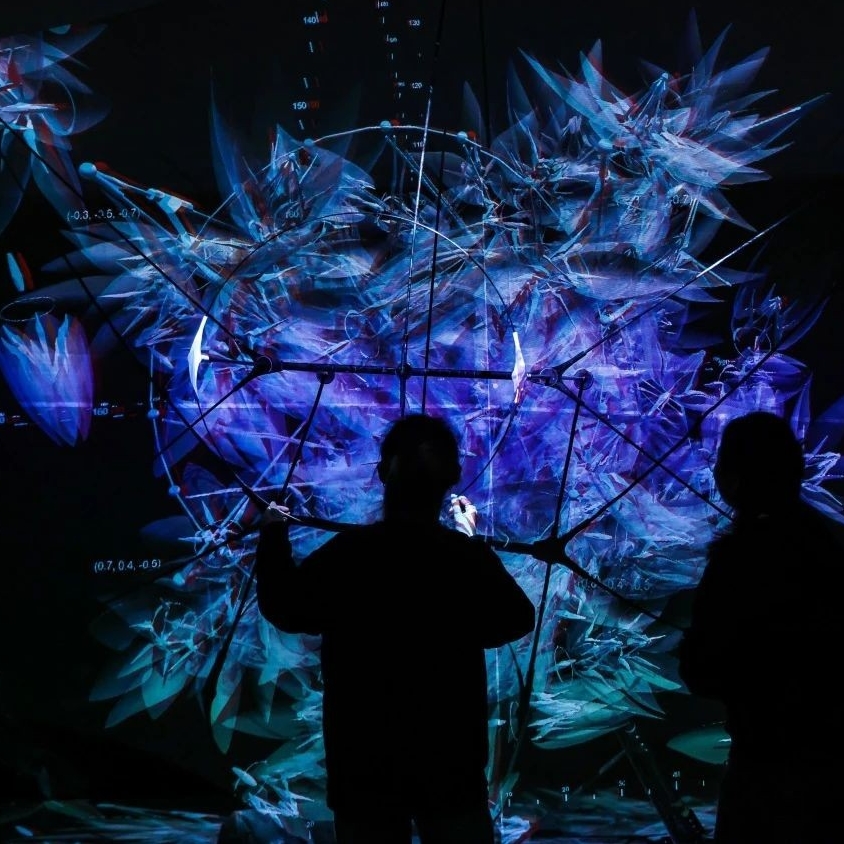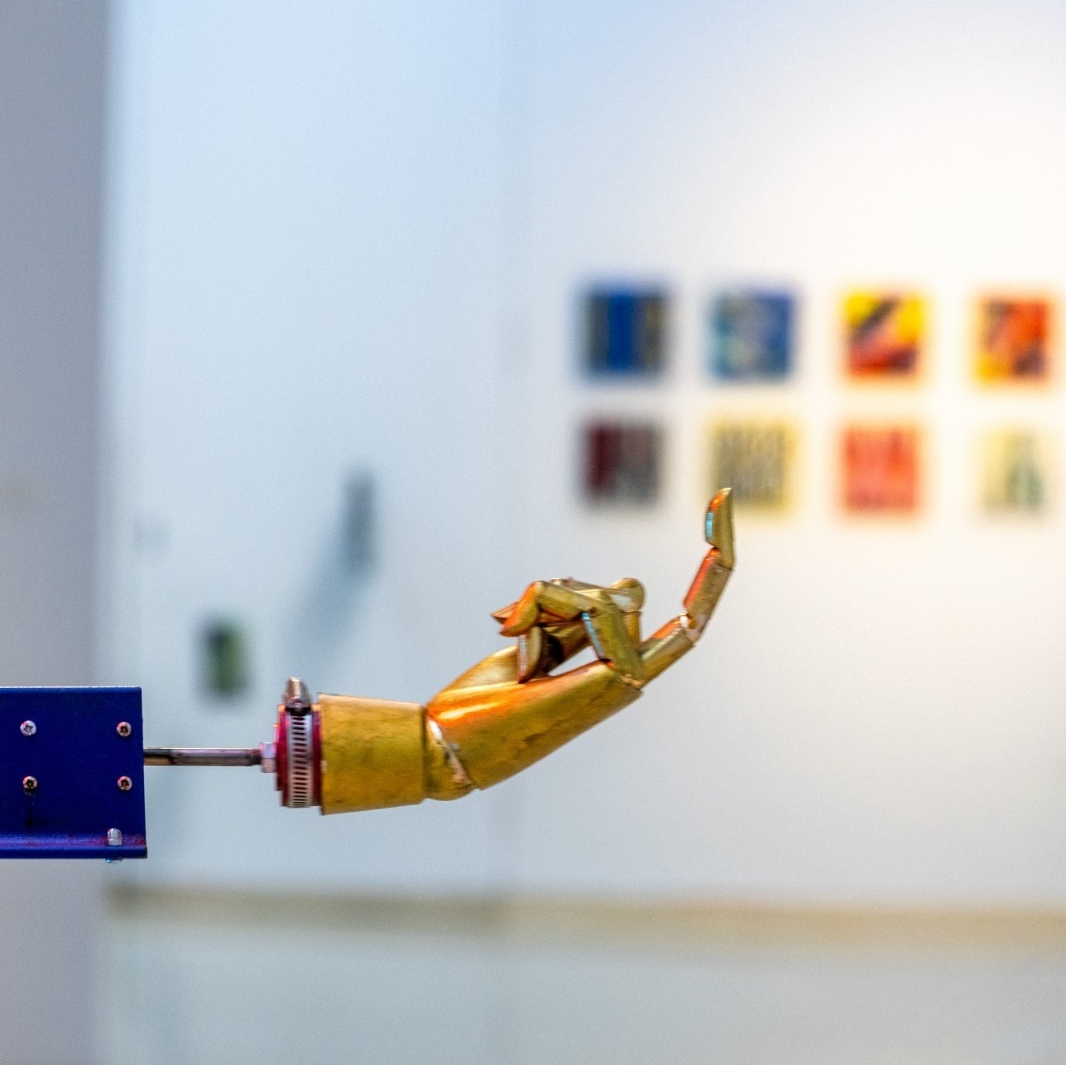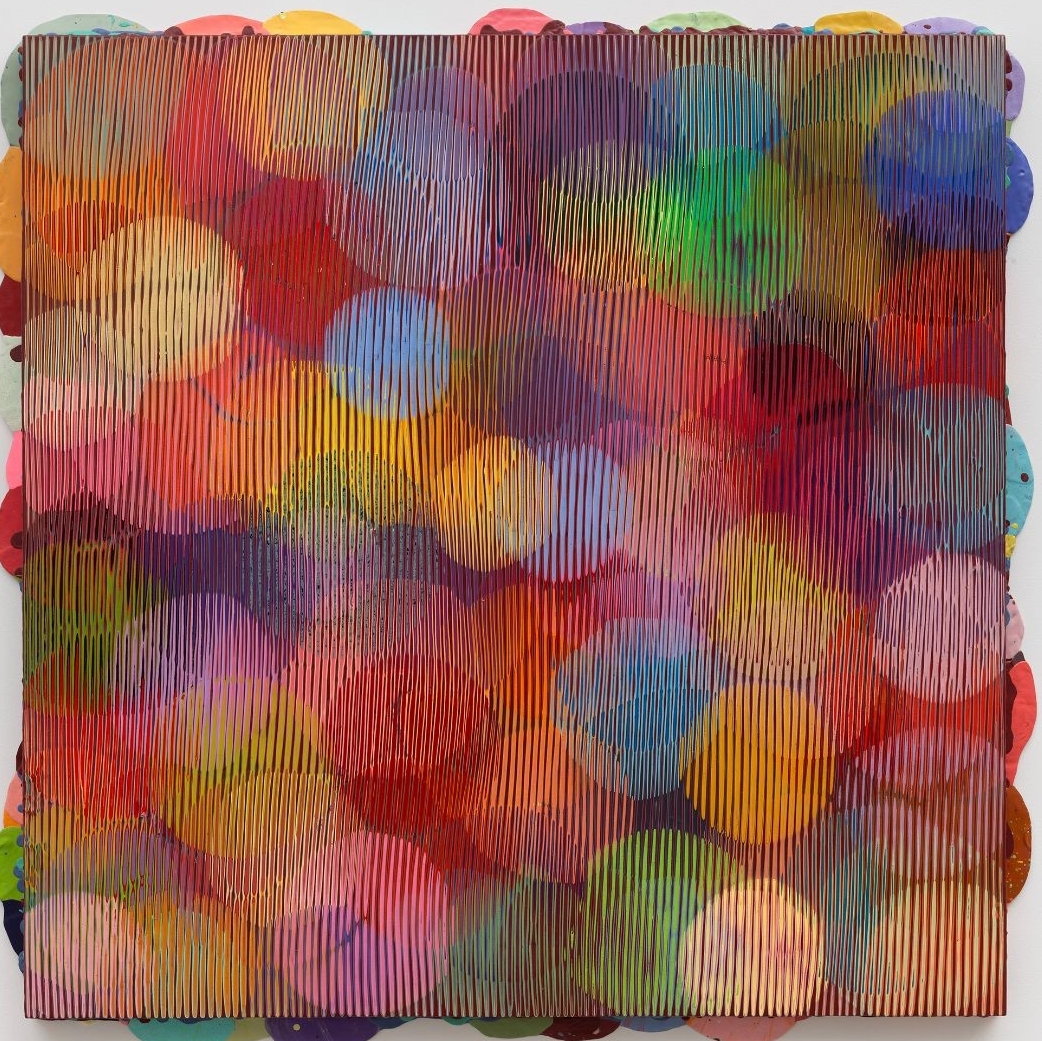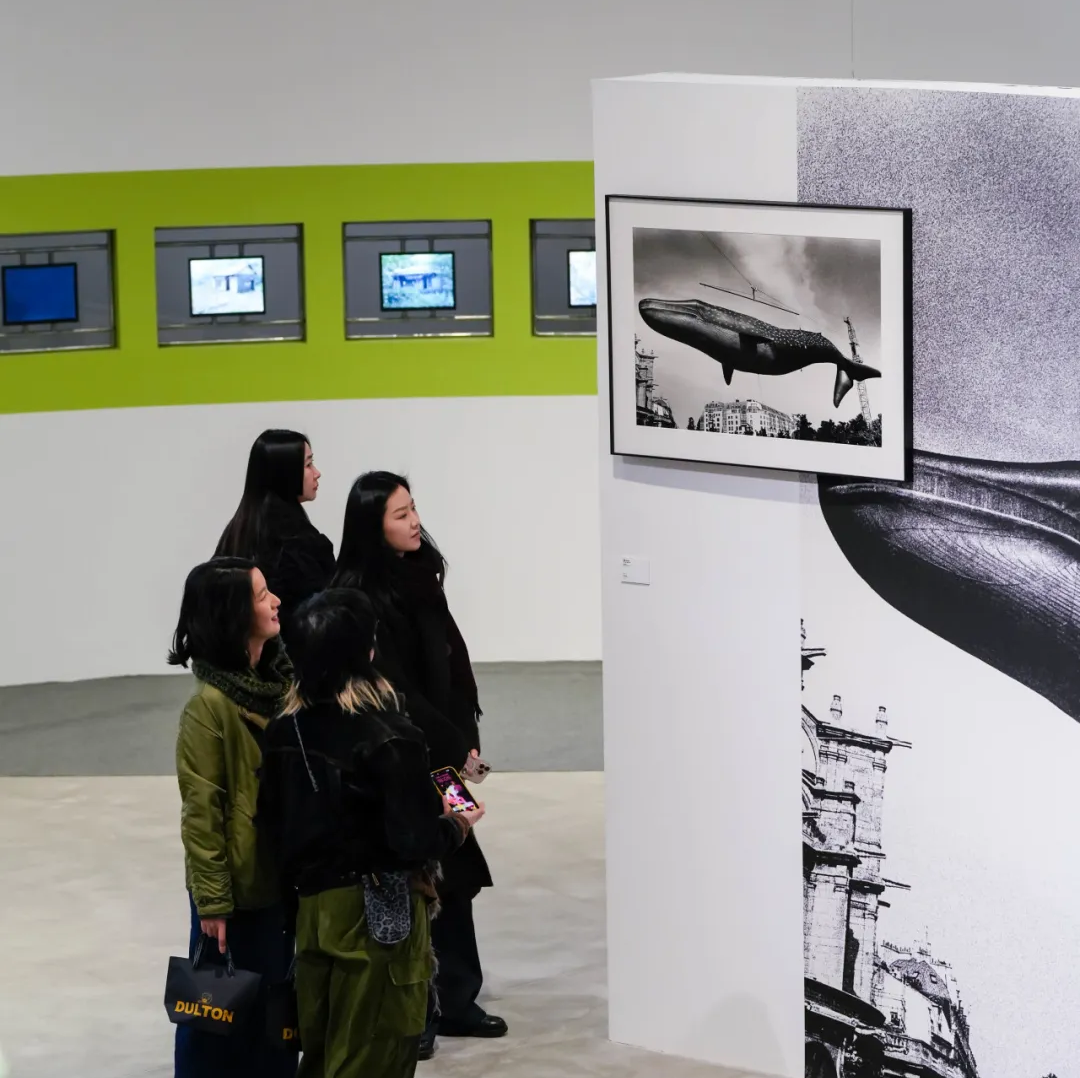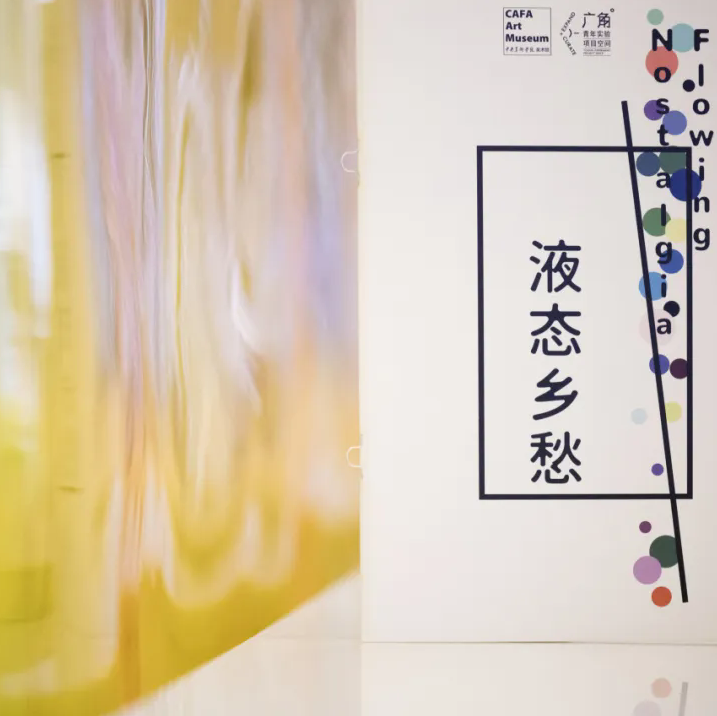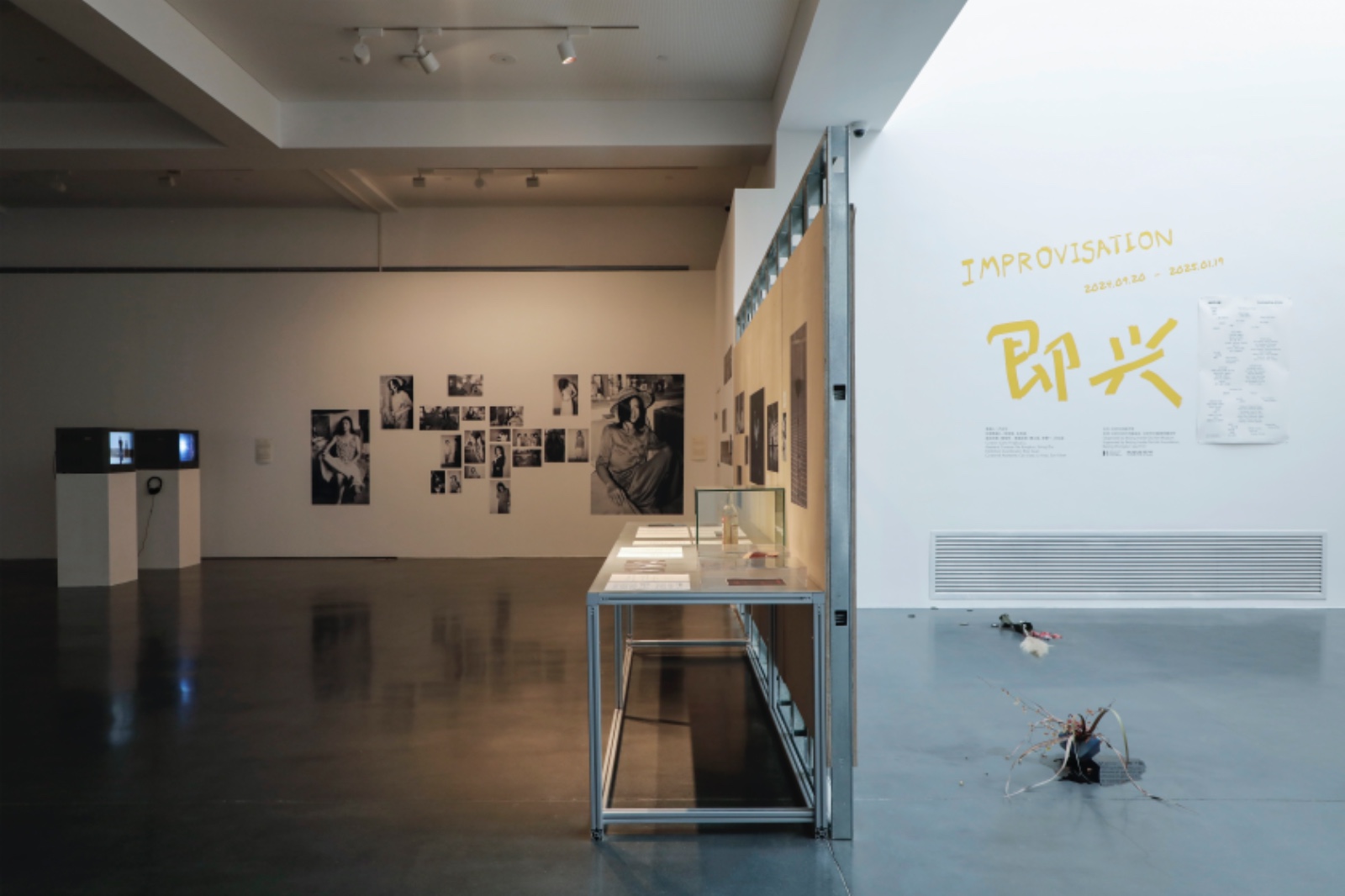 Exhibition View
Exhibition View
From September 20, 2024 through to January 19, 2025, Beijing Inside-Out Art Museum presents a group exhibition themed on “Improvisation”. It brought together dozens of works by 22 artists/art groups including Bai Shuangquan, Chen Liang, Chen Zhou, Er Gao (He Qiwo), He Liping, Hu Yiyao, and Liu Zhan, to showcase the diversity and profundity of improvisation in art. Spectators are also invited to experience the power of improvisation on site, to feel how it has become a part of art and life, and even activated the vitality of art and individuals.
“Improvisation highlights an artistic process where the artist finishes their work immediately and swiftly, using everything at hand, when the inspiration, provoked by an external stimulus or an internal impulse, hits unpreparedly and uncontrollably,” wrote by Carol Yinghua Lu in the preface for the exhibition. In her opinion, improvisation is not only a method of creative practice, but it is also a concept of creation, a trans-cultural phenomenon that is probably as long as human history.
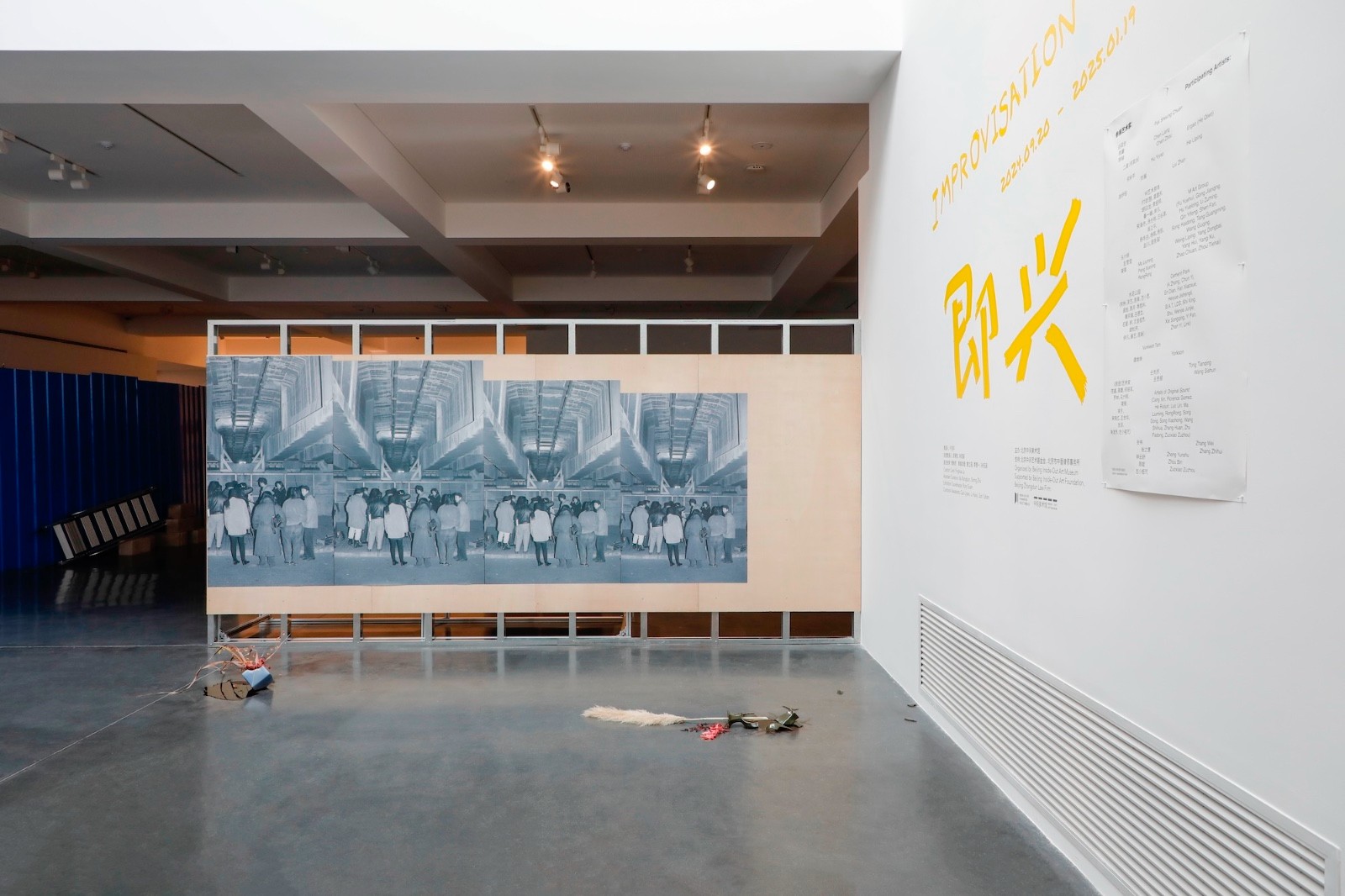
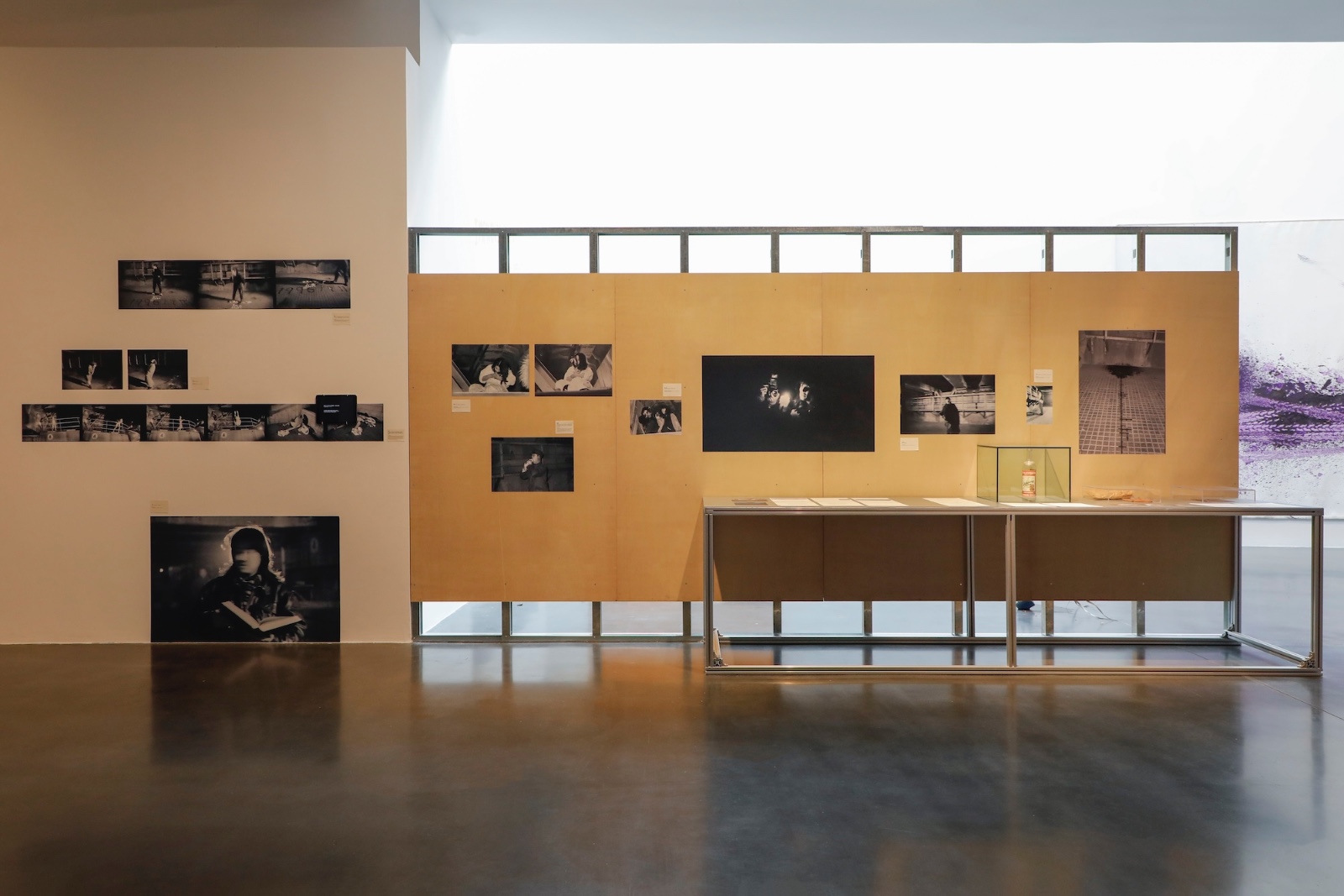
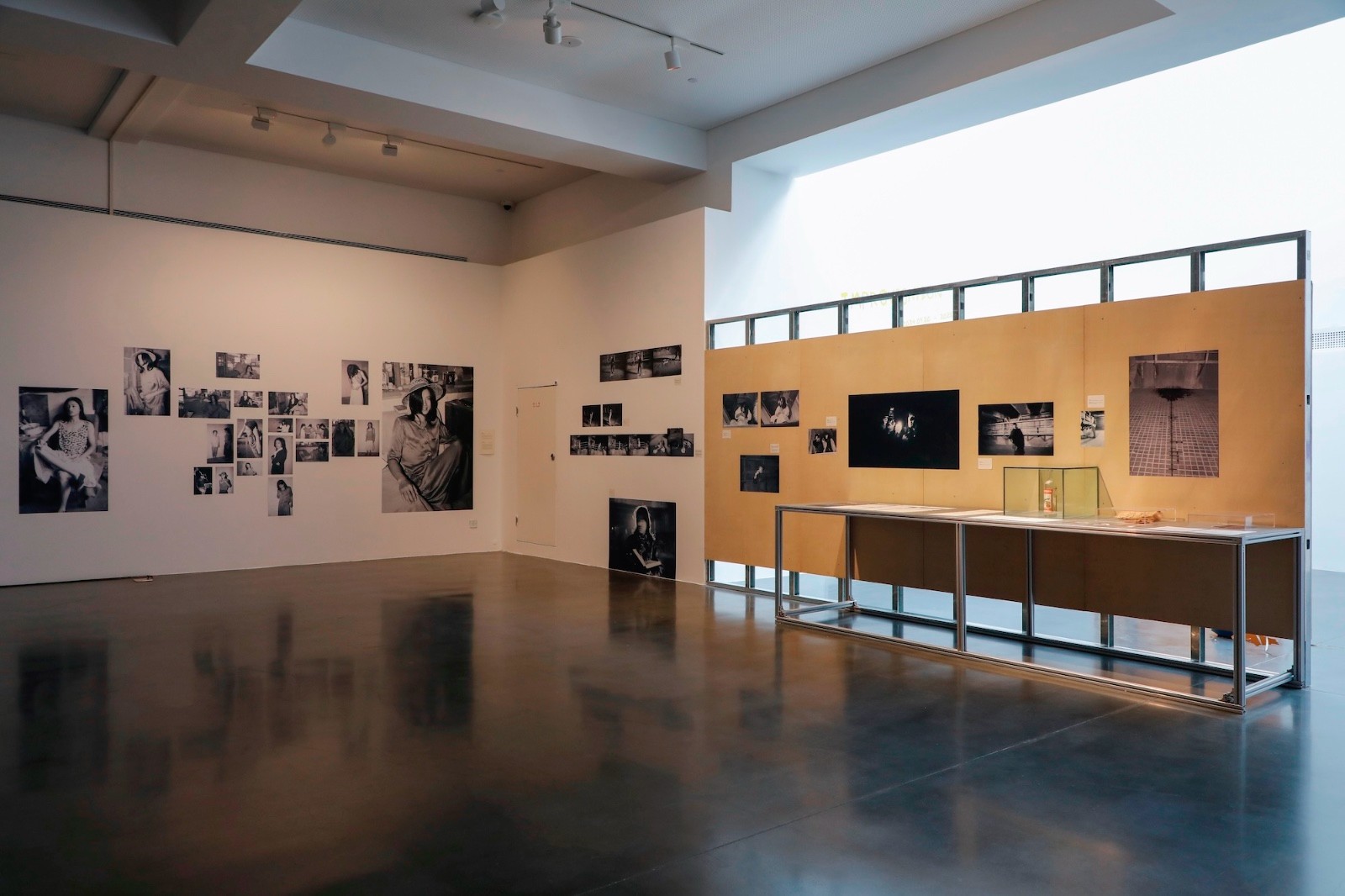 Exhibition View
Exhibition View
The exhibition starts from the gallery on the second floor of Beijing Inside-Out Museum with live photos of performance “original sound” by artists of East Village in 1993.
In 1992, when China’s market economy took off, the “cultural economy” and the cultural industry that took shape gradually during this period began influencing and regulating the orientation of art and cultural practices. Unprecedented anxiety, depression, and even emptiness occupied the mind of the literary and artistic community. At this time, the performance art in the Beijing East Village, which paralleled the rock ‘n’ roll scene in Beijing, was a demonstration of a collective restlessness after a long period of inhibition, and of the awakening of artists’ individual consciousness. It featured immediacy, directness, intense body language, and an observation and expression of the living environment from a grassroots perspective. It was vital for the artists to express their perceptions of states of being through an emphasis on their own specific bodies, and through the genuine relationship between their bodies and the daily environment around them.
They endeavored to break away from strict norms, to create out of their experience rather than knowledge, to experience history and psychological echoes of reality. In short, they met their life of the moment at eye level. They believed that they were part of life, and that they were one of the states that life could be. They also sought to integrate art into daily life, seeing their personal feelings and experiences in society as a starting point for creating a culture that is indigenous. They tried to reflect their contemporary life, and thus to make themselves part of the society.
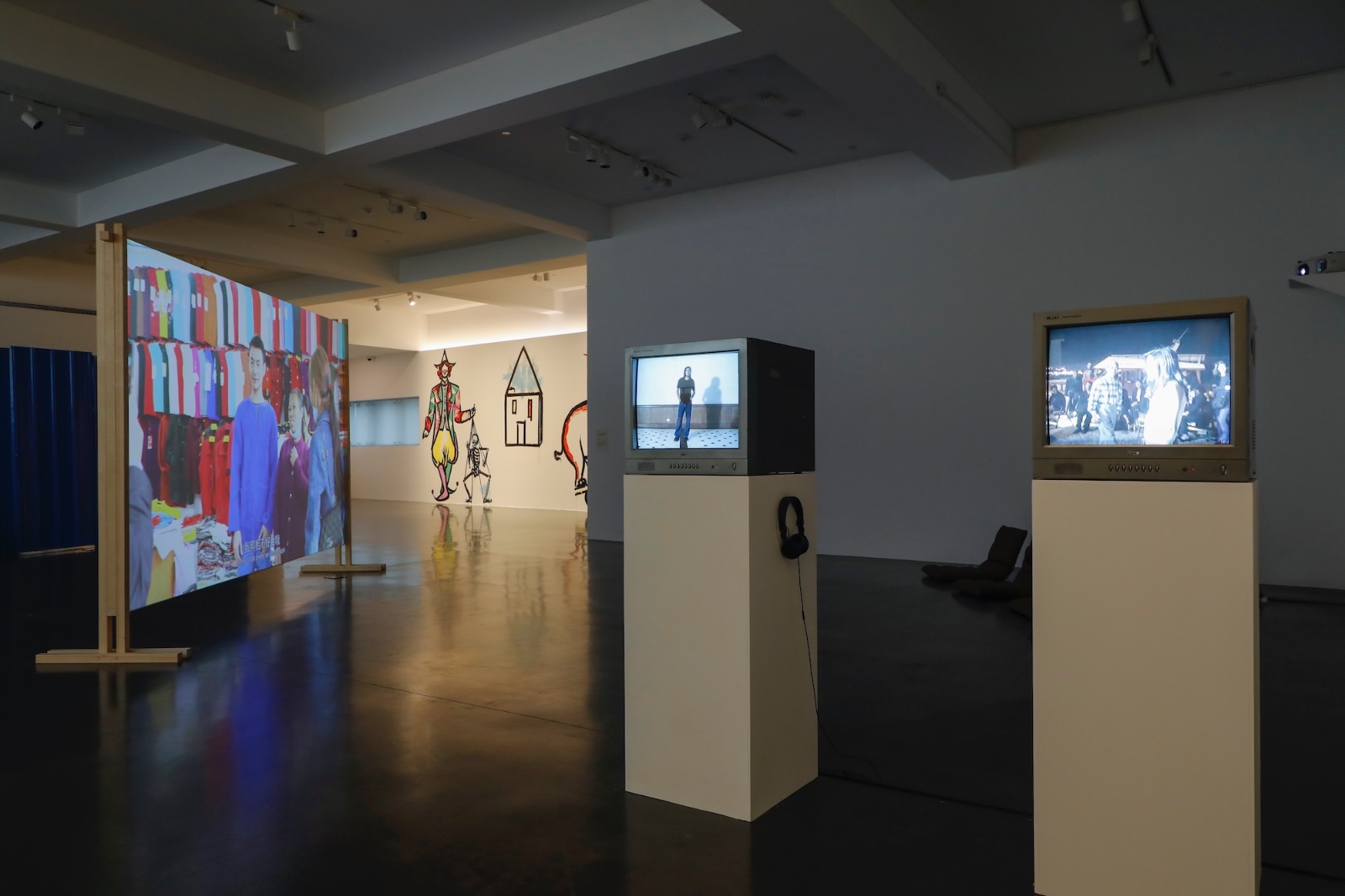
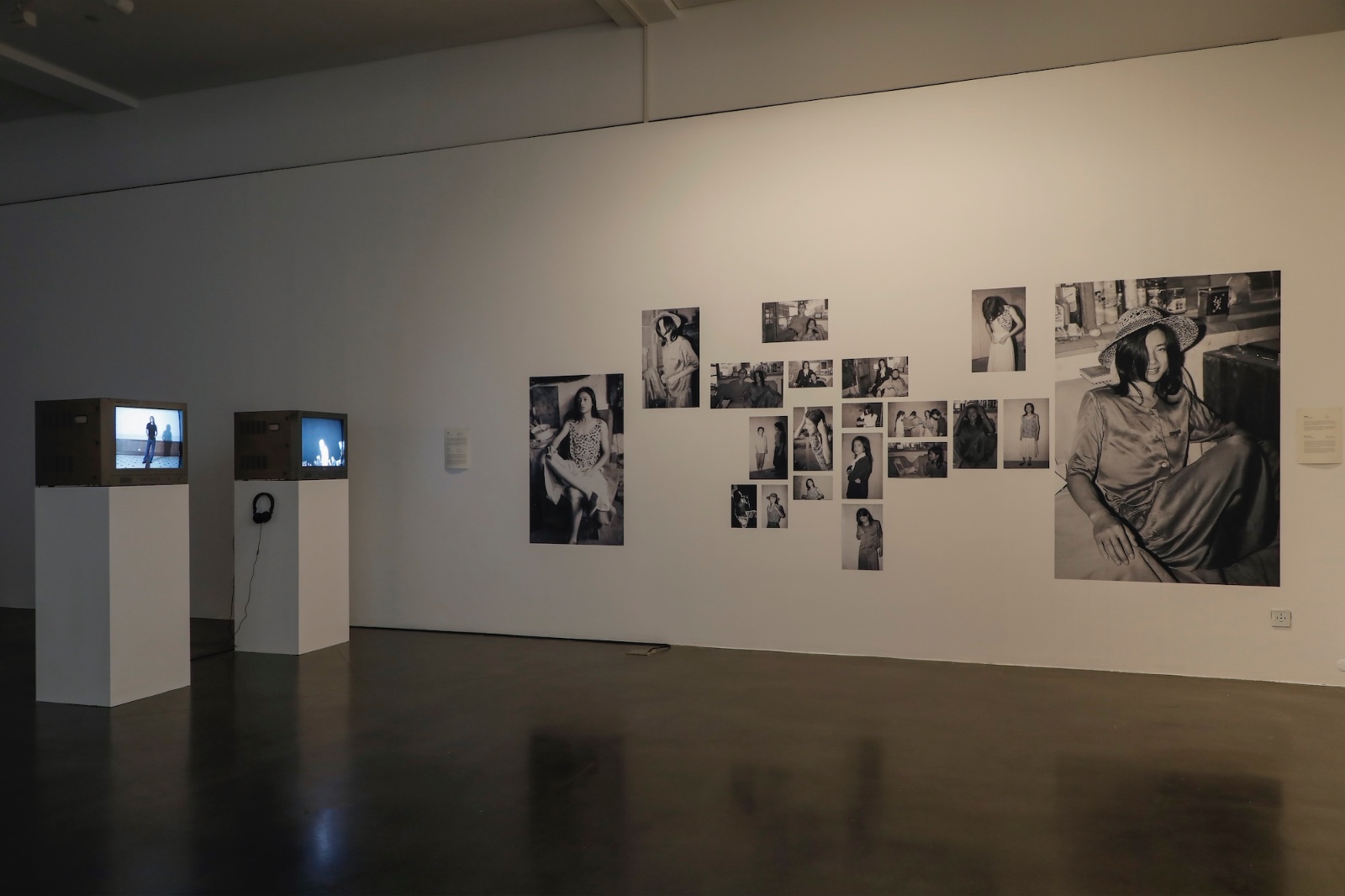 Exhibition View
Exhibition View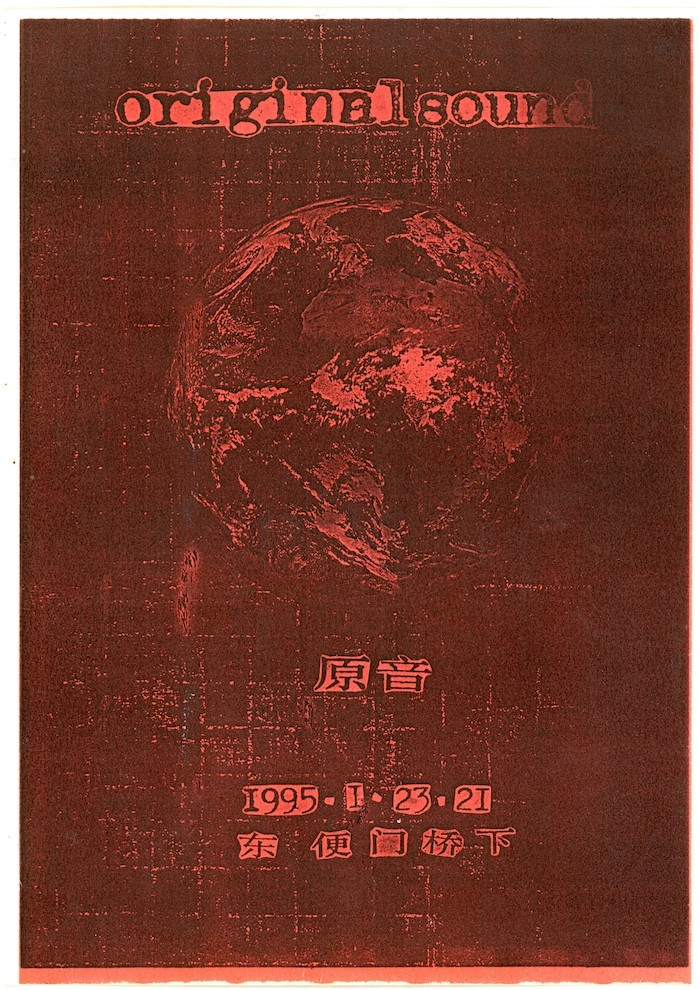 Poster of original sound, document, 1995, A4
Poster of original sound, document, 1995, A4
Ma Liuming gradually identified performance art as a creative way of self-expression since he moved to Beijing East Village in June 1993. His alter ego, Fen-Ma Liuming, which he assumed in 1993, is an androgynous figure who emphasizes the contrast between feminine beauty and a man’s body. “A Perfect Day” recorded Ma Liuming’s performances in Thailand (2000) and Istanbul (2001).
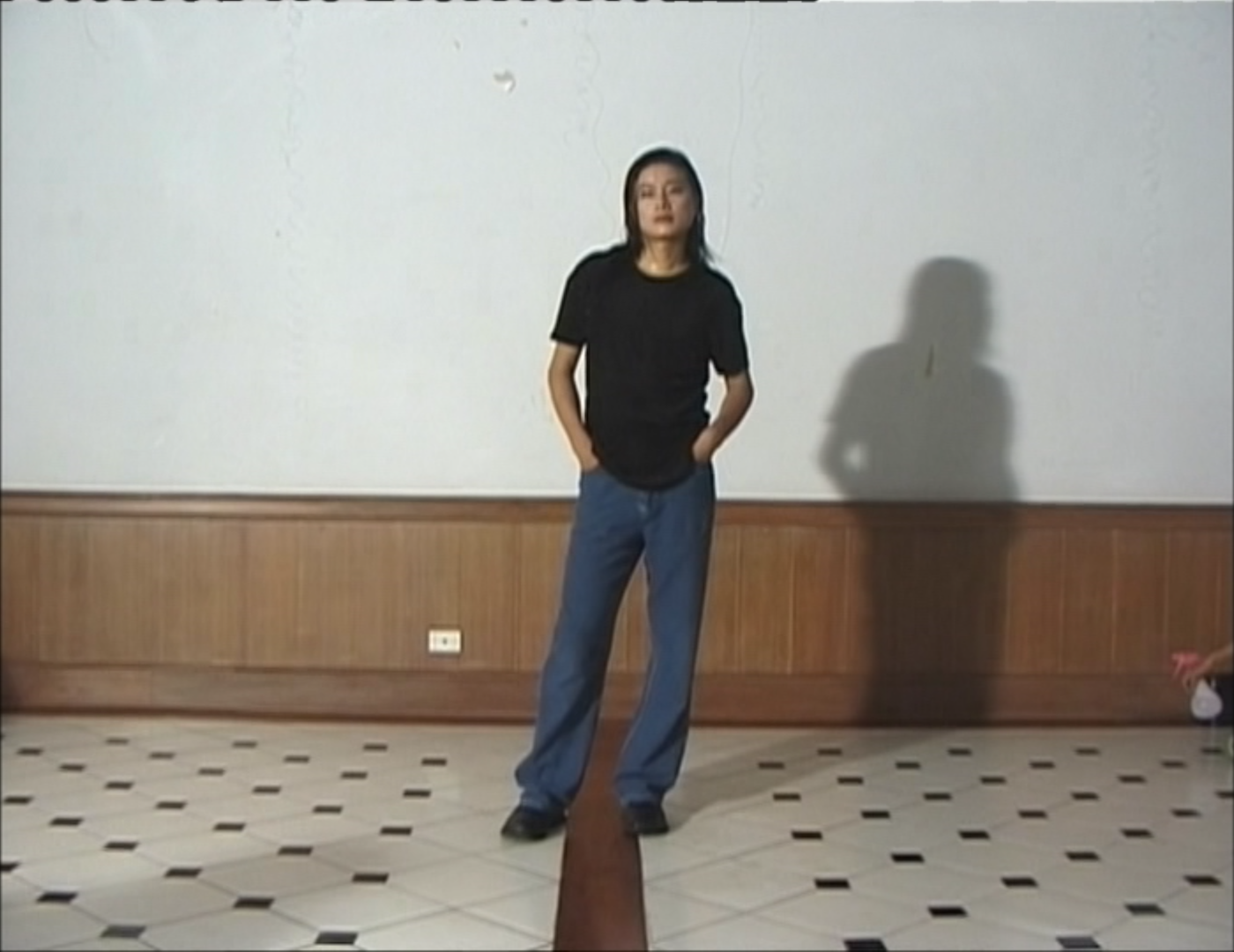 Ma Liuming, A Perfect Day, Performance, single-channel video (color, sound), 2000, 8'06"
Ma Liuming, A Perfect Day, Performance, single-channel video (color, sound), 2000, 8'06"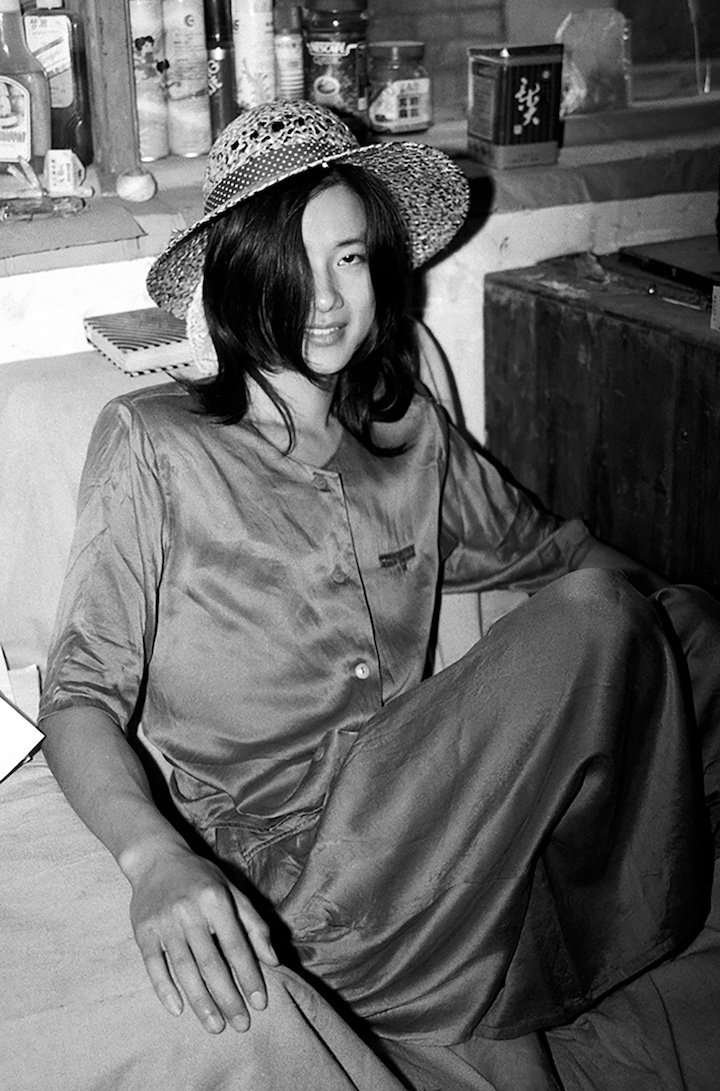 Ma Liuming, Fen-Ma Liuming Series 1, Photography, Photographed by Tan Yeguang
Ma Liuming, Fen-Ma Liuming Series 1, Photography, Photographed by Tan Yeguang
Cement Park LIVEHOUSE moved their activities from offline to online since 2019 and they have looked for new inspiration and expressive methods through digital platforms. 14 various works were selected to show the state of people when they were unable to connect with others owing to the pandemic. Similarly, Ergao cannot proceed on his dance practice at institutions in the same period. Inspired by the energetic sales of a girl at Huangbian Village, he conducted a 10-day “Ergao Performance Huangbian EA Store” and danced with villagers.
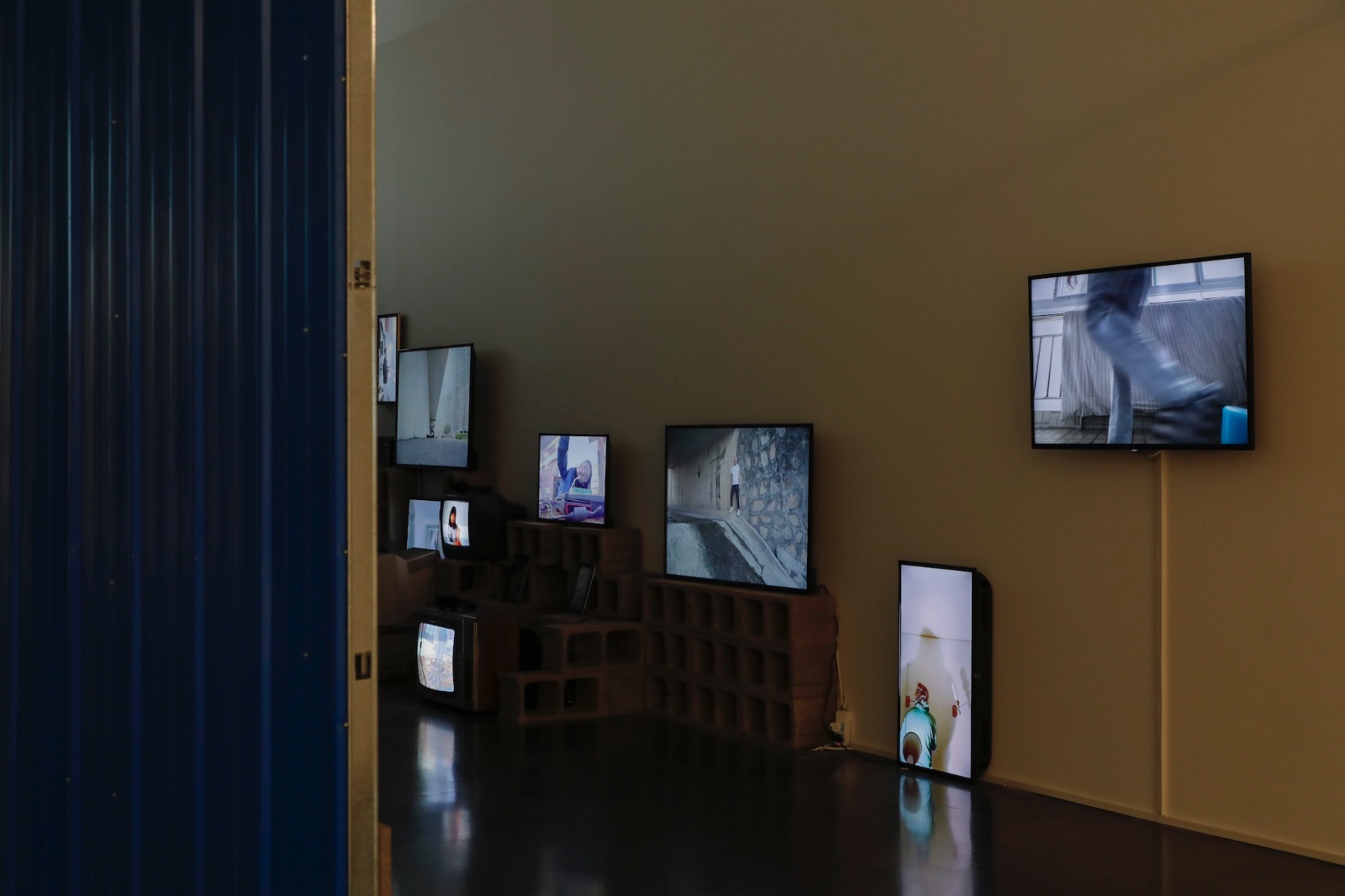
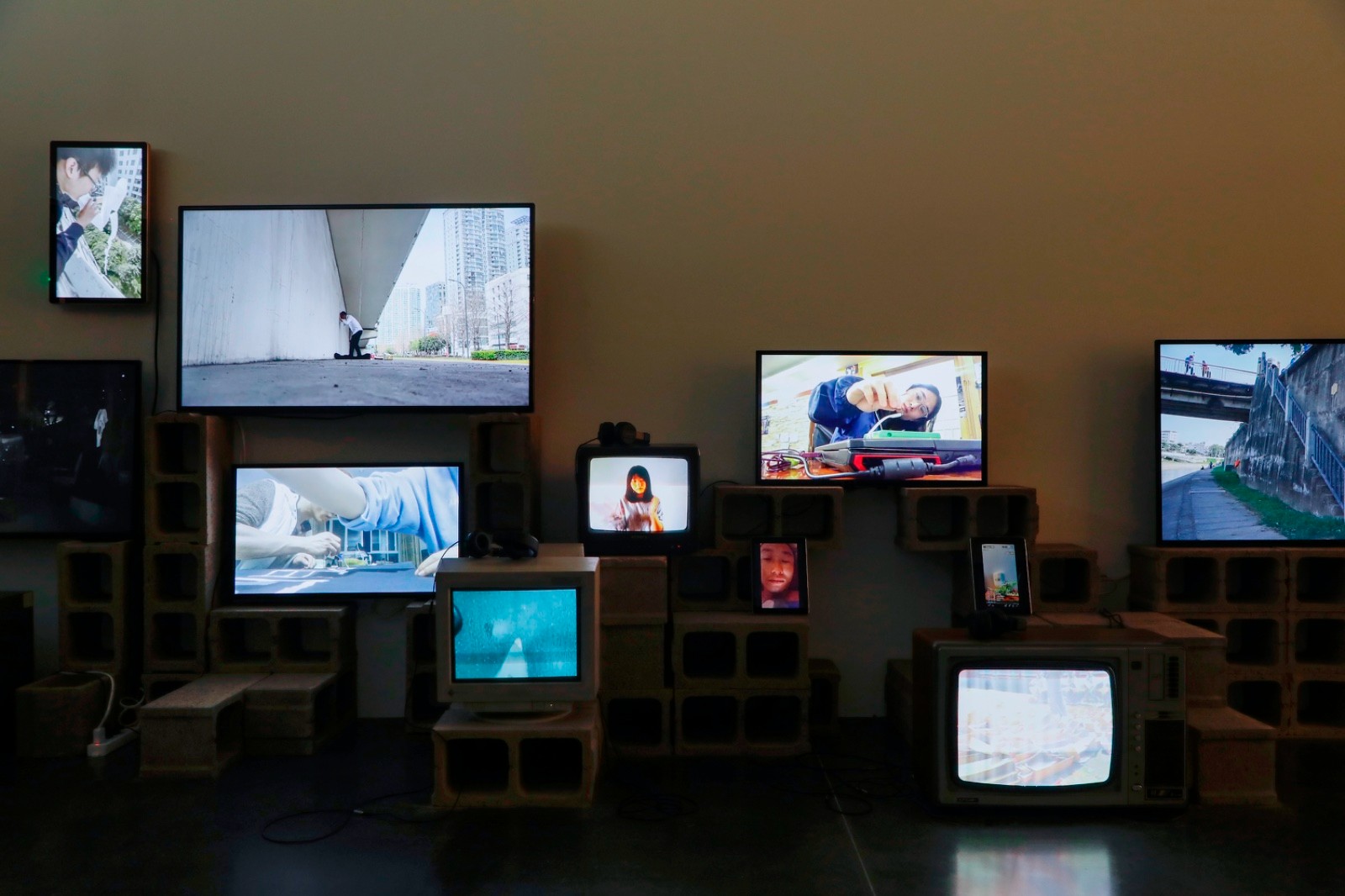 Exhibition View
Exhibition View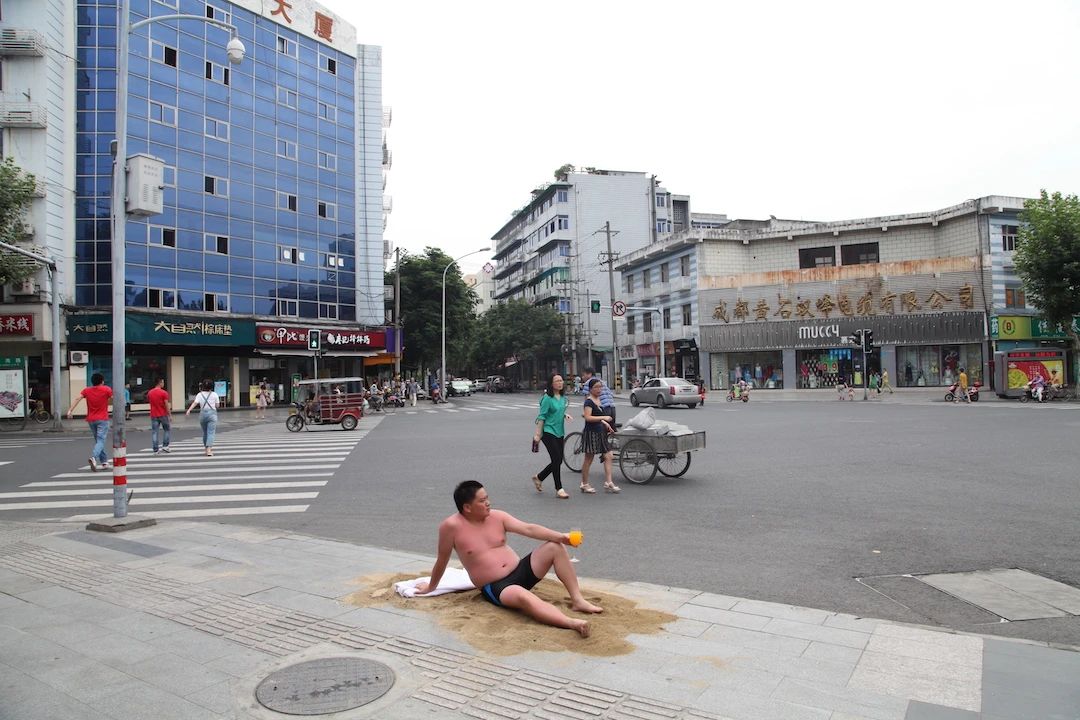 He Liping, As long as there is sand in your heart, everywhere is Maldives!, performance, photography, single-channel video (color, sound), 2015, 25'03''
He Liping, As long as there is sand in your heart, everywhere is Maldives!, performance, photography, single-channel video (color, sound), 2015, 25'03''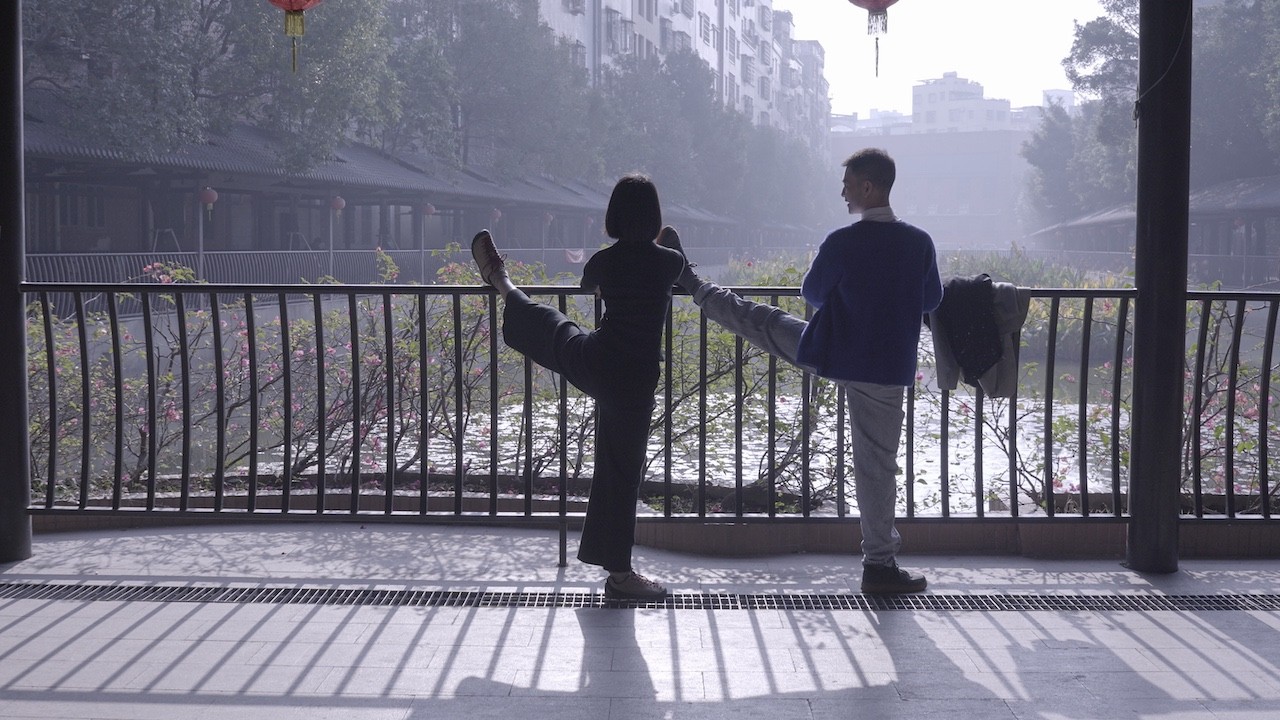 Ergao (He Qiwo), Huangbian, Community Art, single-channel video (Color, Sound), 2020, 47’
Ergao (He Qiwo), Huangbian, Community Art, single-channel video (Color, Sound), 2020, 47’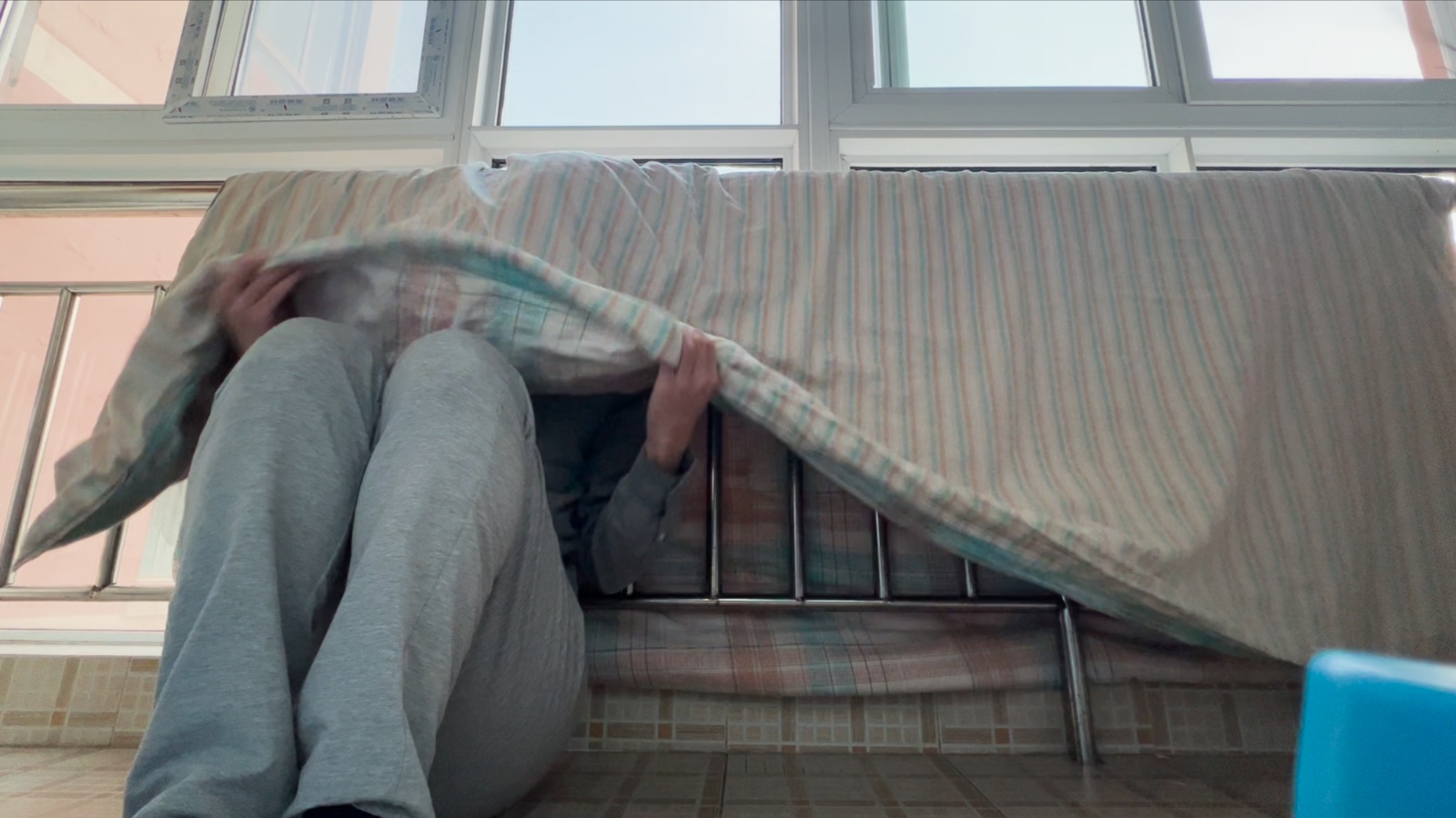 Cement Park, That’s World, performance, 14-channel video installation (color, sound), 2022 - Gao Xu, I’m Still on the Balcony·Dusting the Quilt, 2022.4.6, Shanghai (still frame)
Cement Park, That’s World, performance, 14-channel video installation (color, sound), 2022 - Gao Xu, I’m Still on the Balcony·Dusting the Quilt, 2022.4.6, Shanghai (still frame)
Tong Tianqing created the unique site-specific paintings in the exhibition including “Hi! Nikulin” and it was inspired by his experience of circus performance in Moscow. Nikulin, a famous Russian clown actor, was awarded the title of “People’s Artist” for his iconic performances. For the artist, the complicated feature of clown is a metaphor of life.
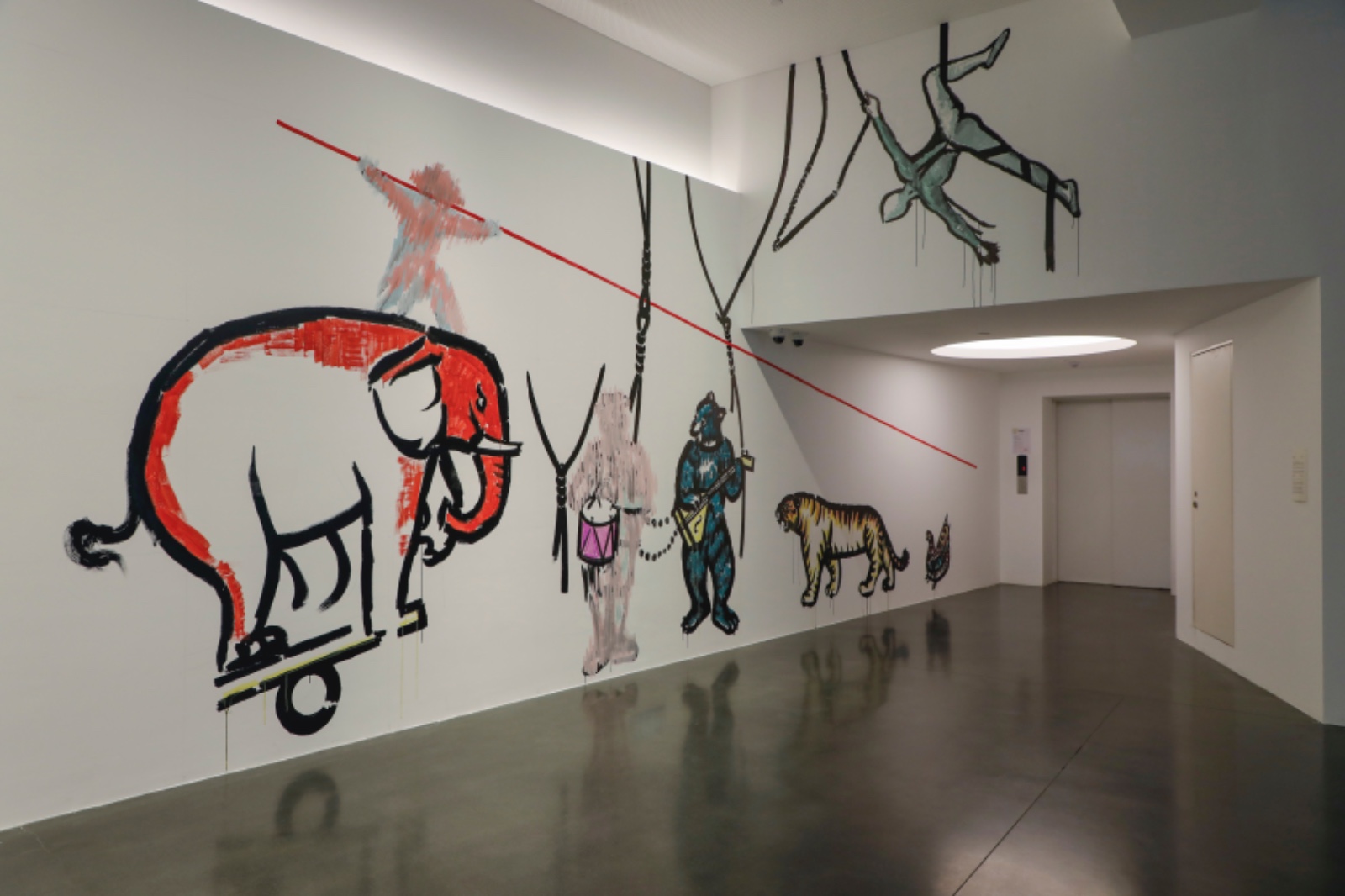 Tong Tianqing, Hi! Nikulin, on-site wall painting, brush, ink, watercolor, pencil, 2024
Tong Tianqing, Hi! Nikulin, on-site wall painting, brush, ink, watercolor, pencil, 2024
Pak Sheung Chuen made “Waiting” series of performances between 2006 and 2007. One of his wonderful and accidental encounter was recorded by the camera at 16:38 and it conveys the subtle relationship between time and interpersonal relations.
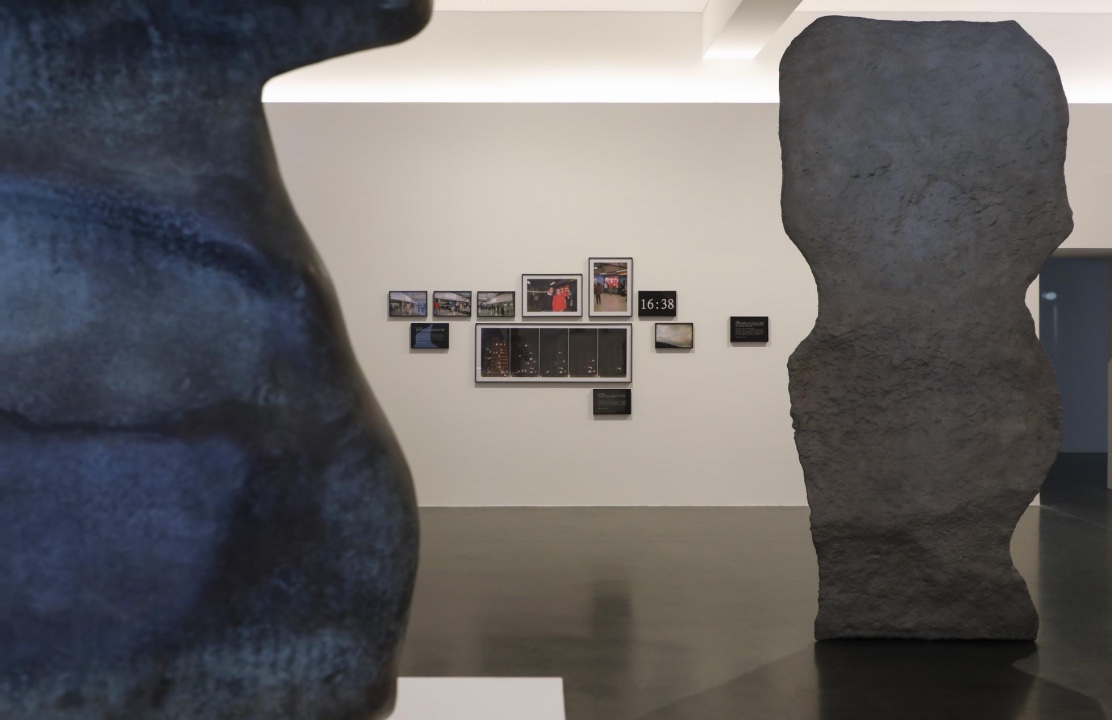
Pak Sheung Chuen, Waiting for a Friend, performance, video, 2006 and 2007
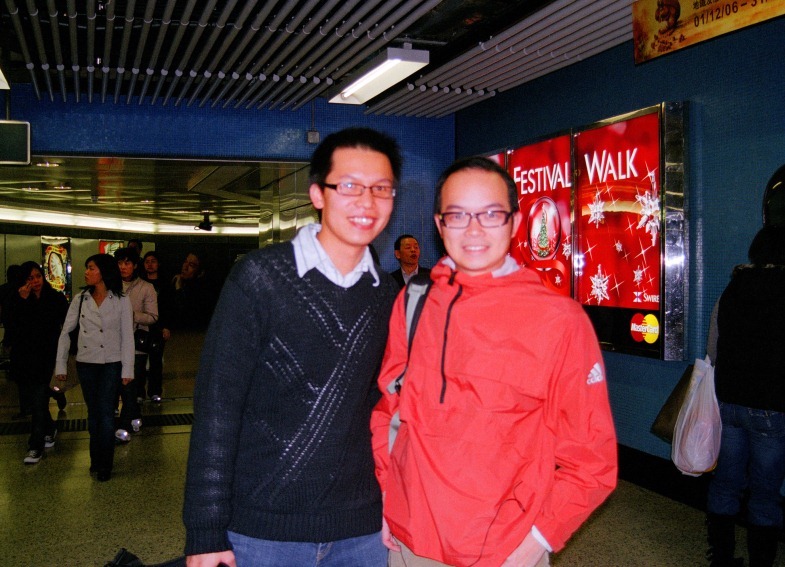
Pak Sheung Chuen and his friend (left) at the Kowloon Tan MTR station
Chaobai River is the administrative boundary between Beijing and Yanjiao, Hebei. In the fall of 2022, Liu Zhan planned to invite some friends to get a party on both sides of the Chaobai River, but it was not realized until January of the following year. When the river had already frozen, his friends from both Beijing and Yanjiao came to both sides of the Chaobai River at the same time, and they finally met each other across the river.
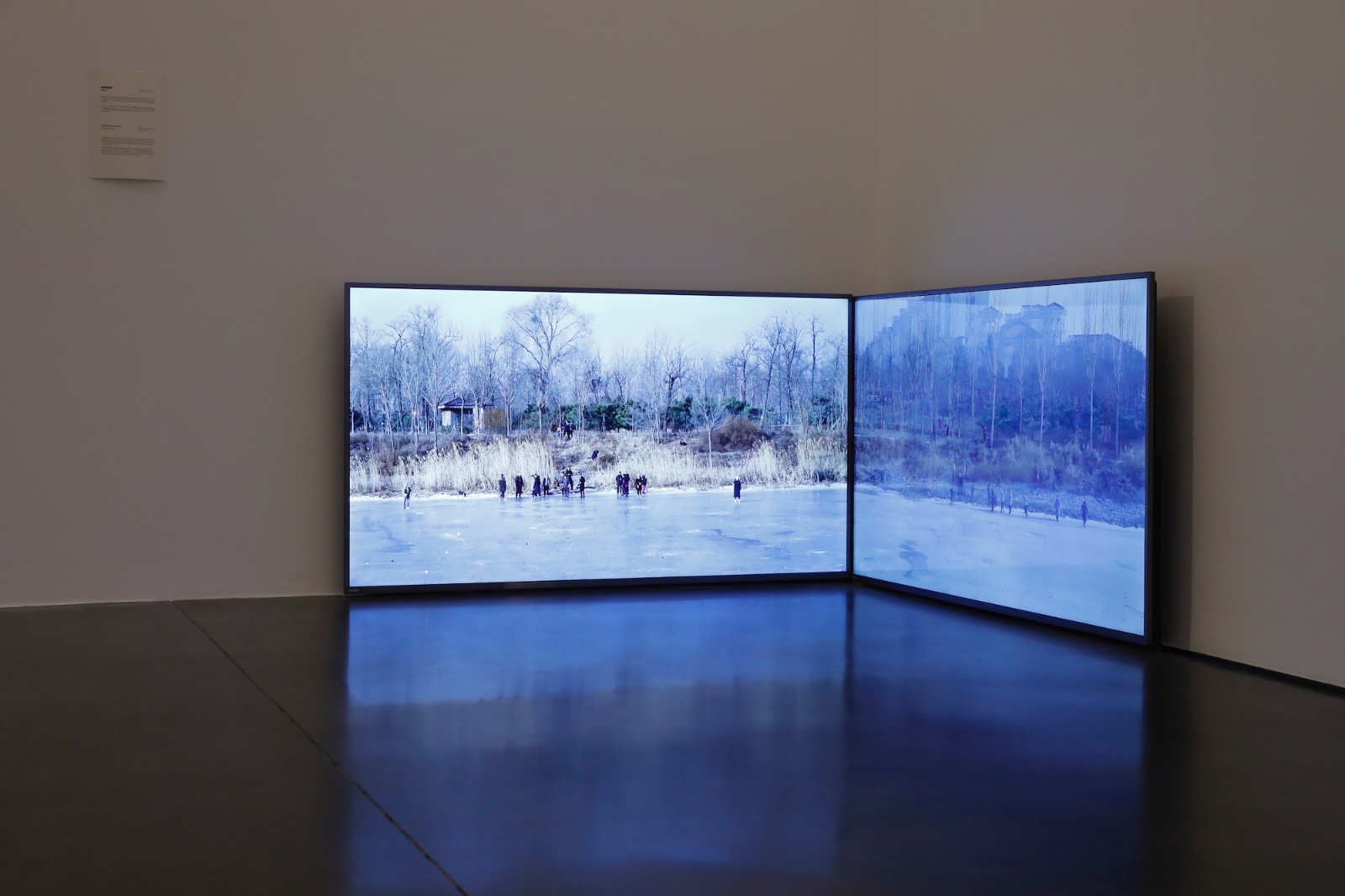
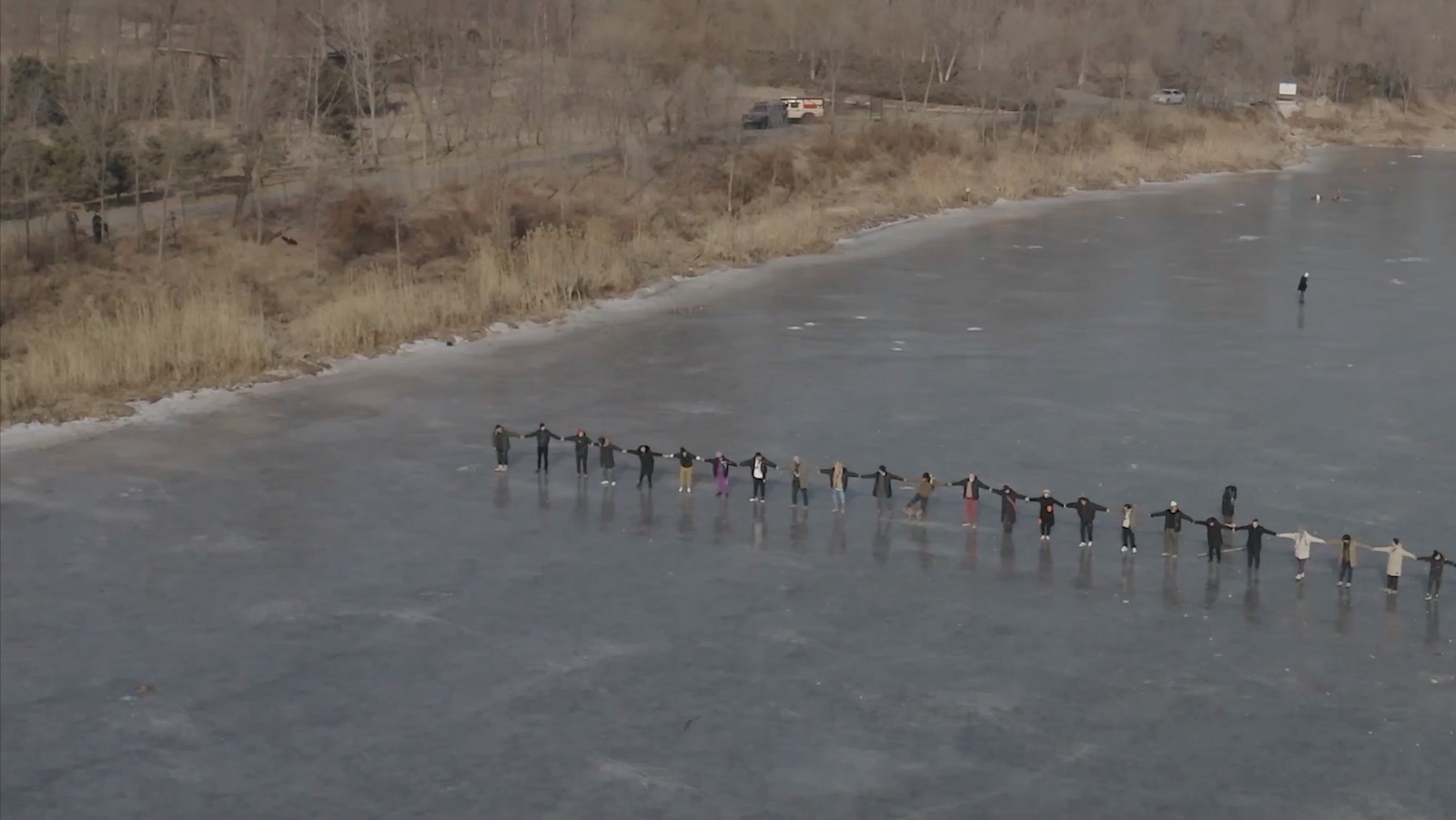 Liu Zhan, Chaobai River, performance, dual-channel video (color, sound) 11'44'', 2023
Liu Zhan, Chaobai River, performance, dual-channel video (color, sound) 11'44'', 2023
“Cats’ Home” series come from Zhang Zhihui’s experience of living in Shanghai where she has rent a room, worked, lived and created in recent years. Cats can always find their own “safe playgrounds” in any limited space, thus a stable residence with updates every day might be the value of cats with a “casual” philosophy.
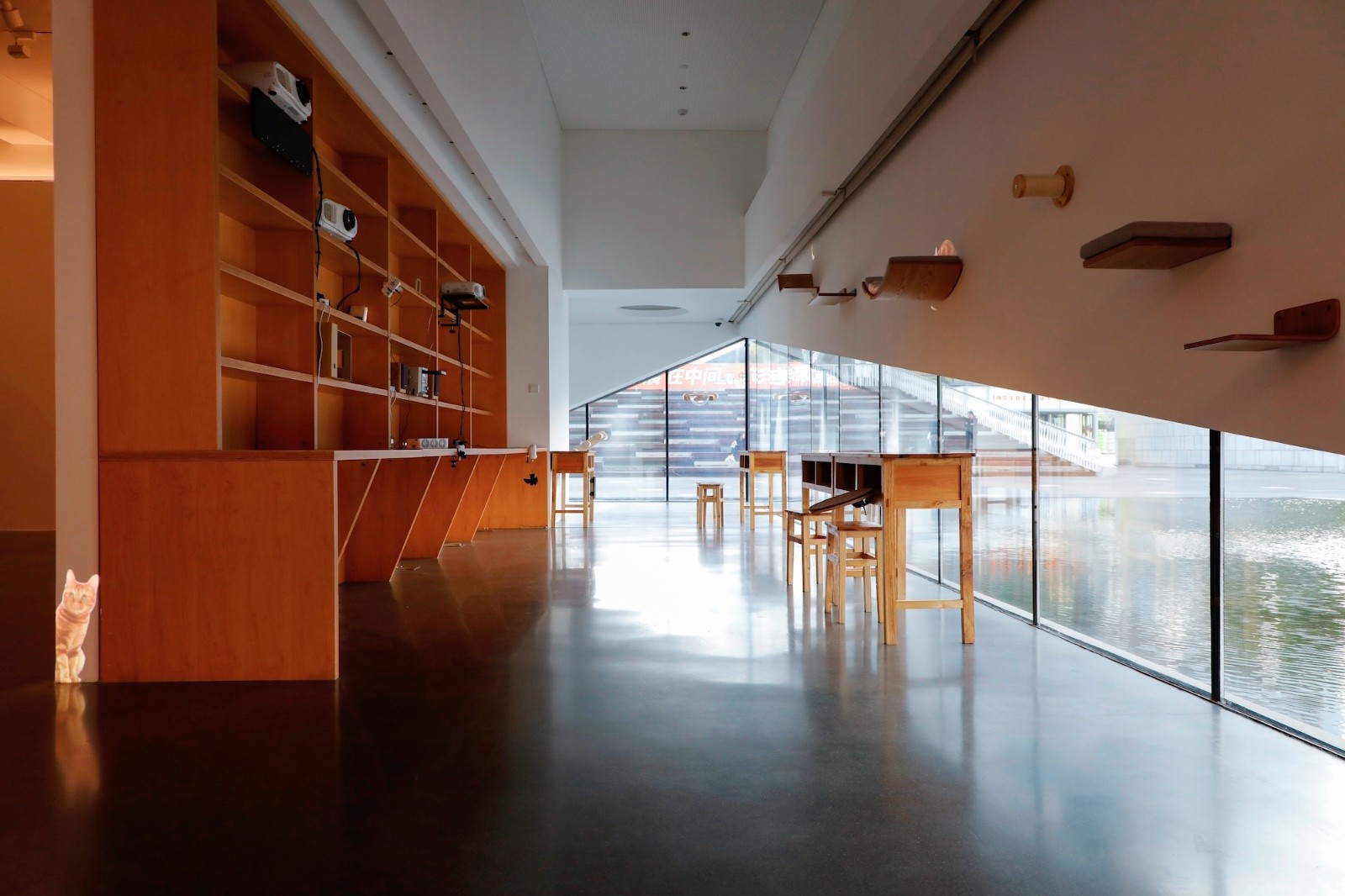
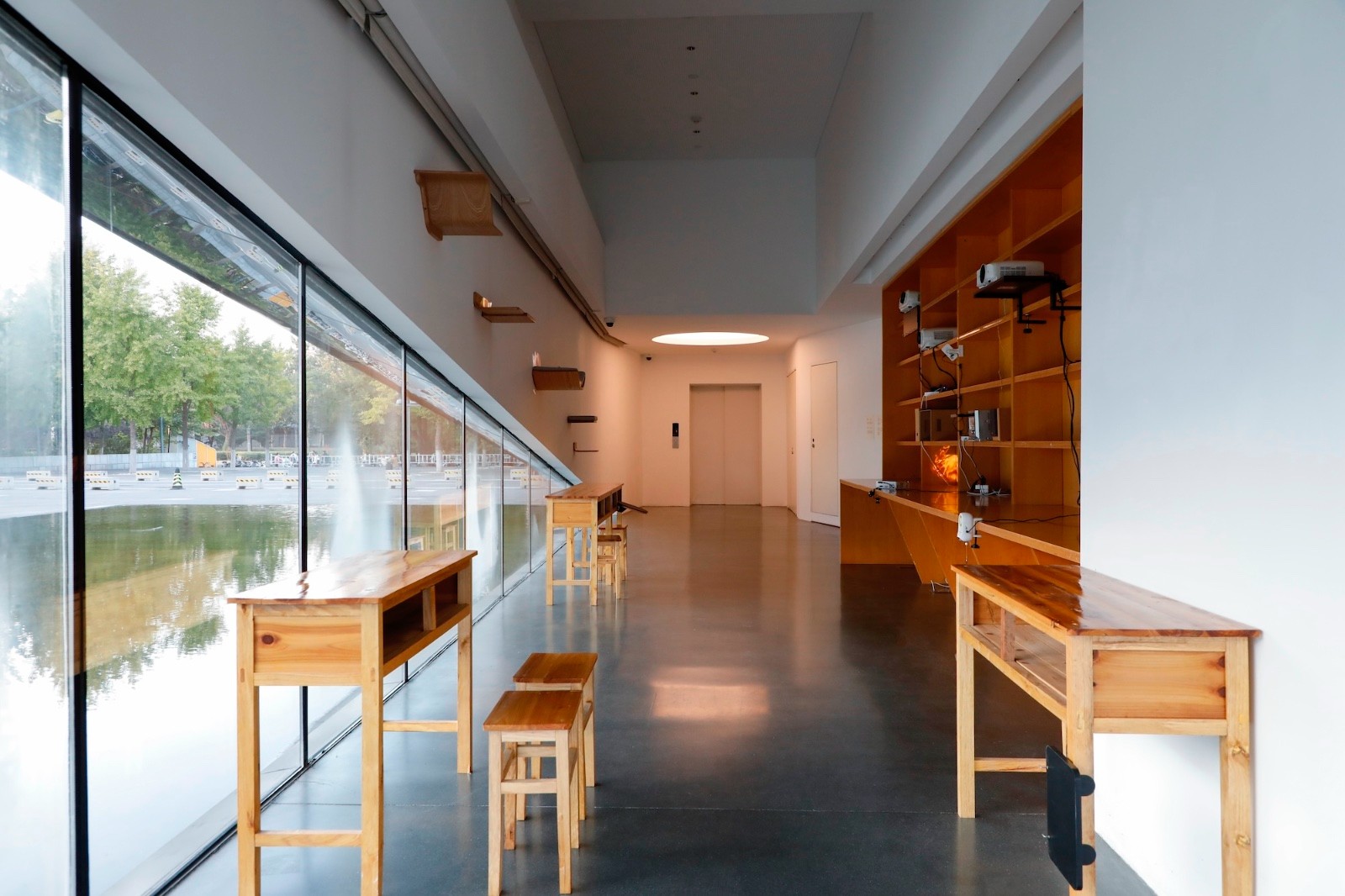
Zhang Zhihui, Cats’ Home, ready-made images, projector, USB flash drive, HDMI transmission line, power supply, punch-free desktop extension board, punch-free cat wall/cat jumping platform and other mixed media, 2024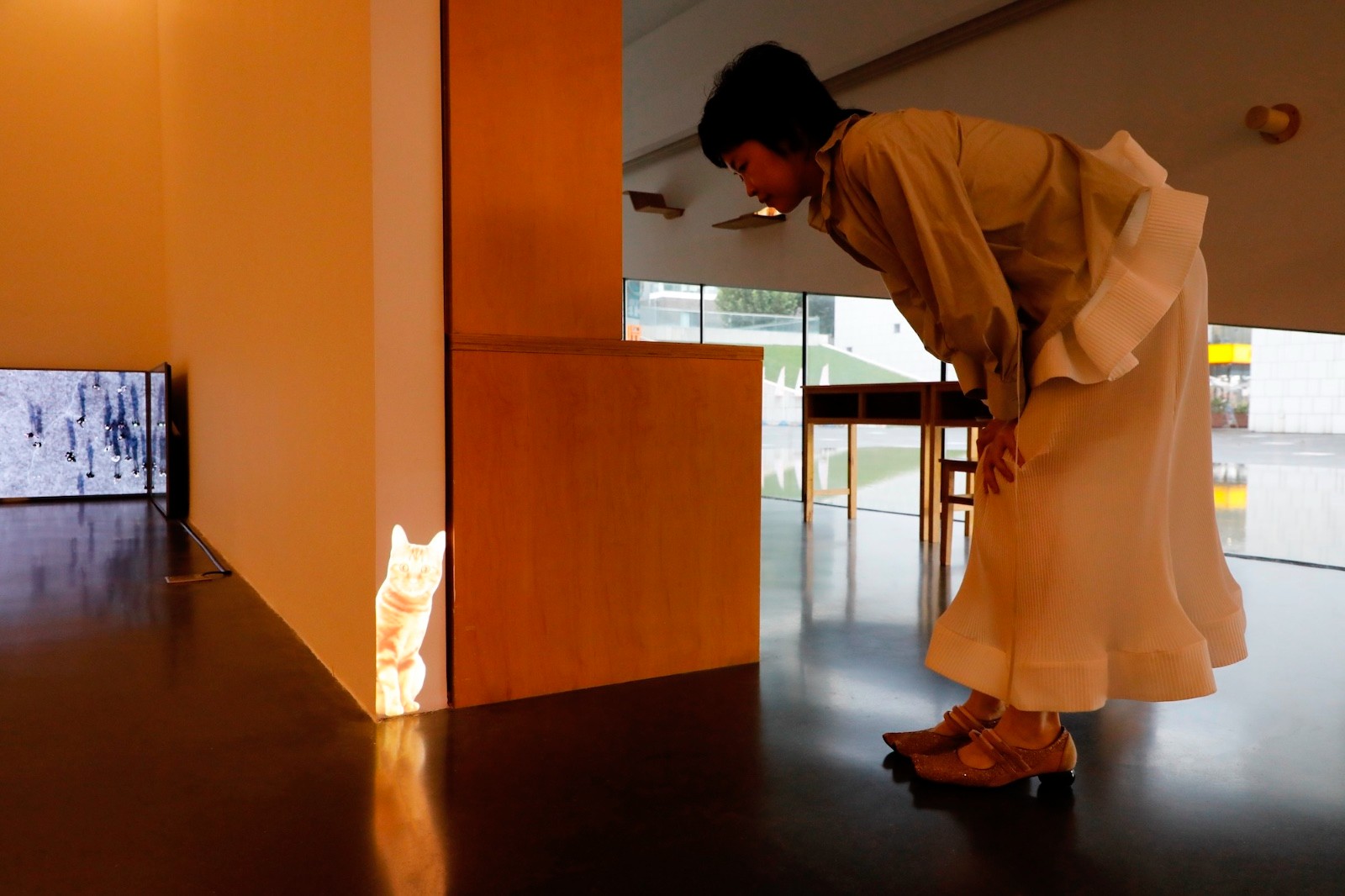
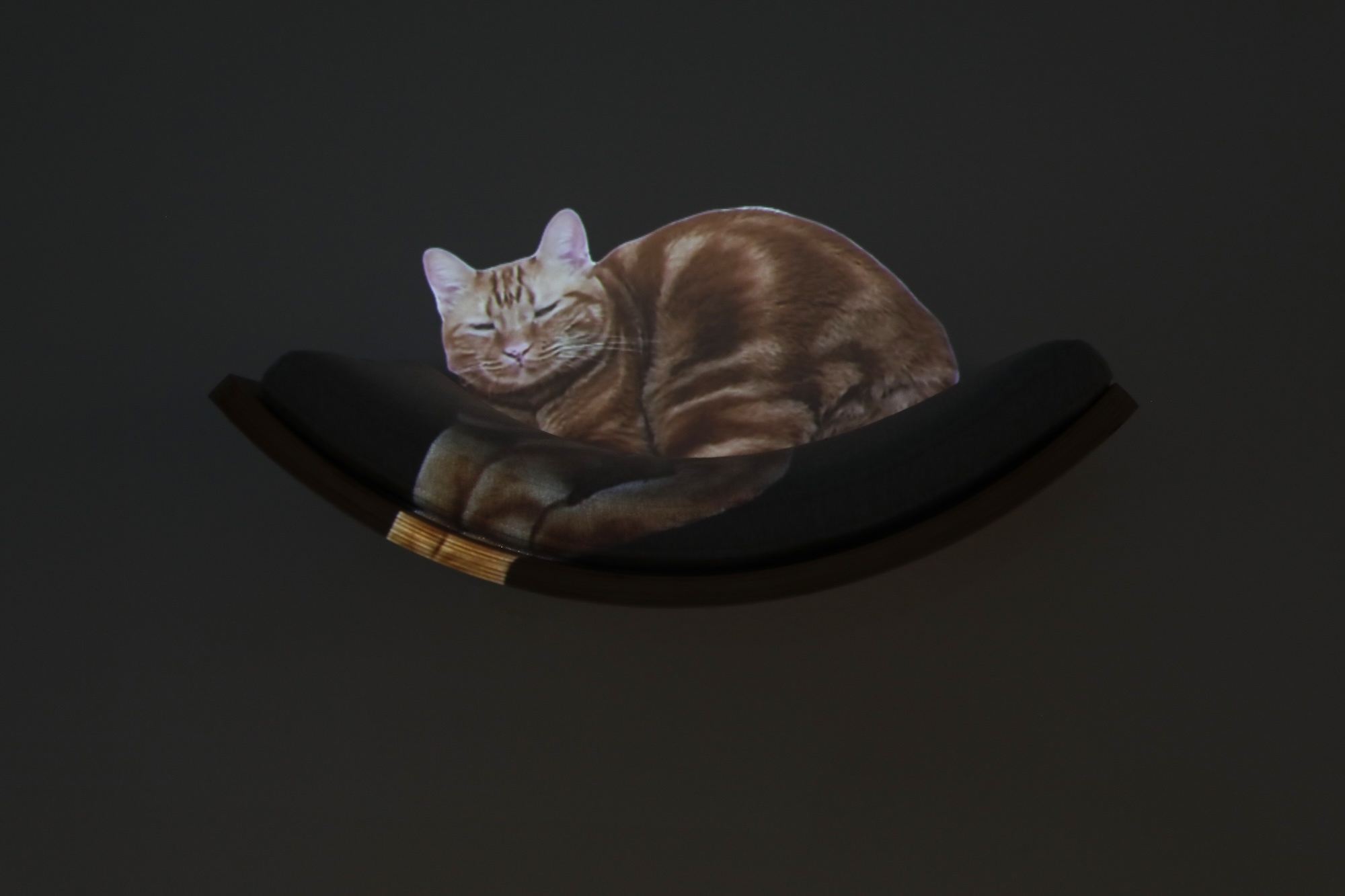
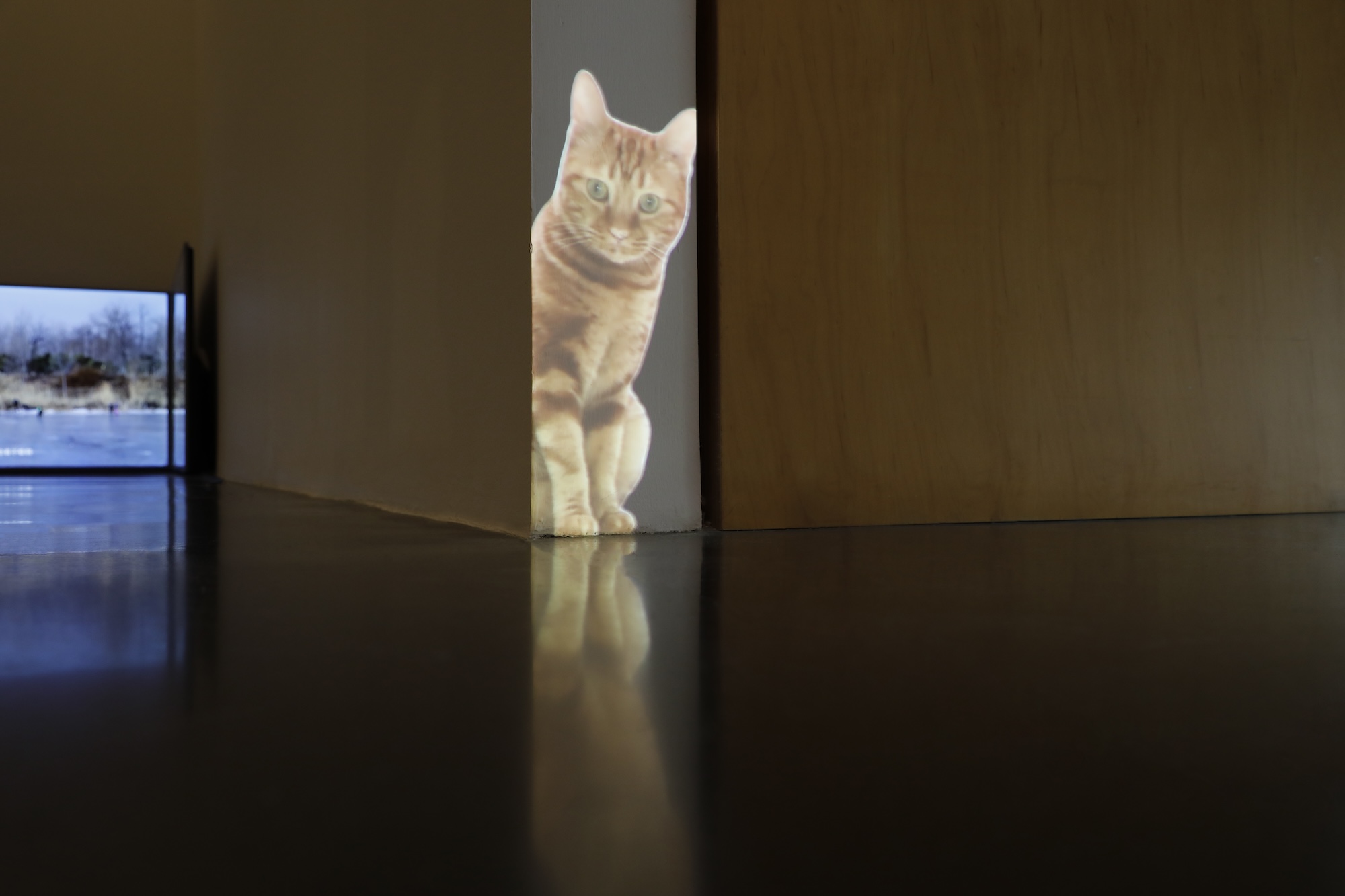 Visitors may inadvertently discover a cat image through projection devices.
Visitors may inadvertently discover a cat image through projection devices.
“Final Poem Museum” contains Chen Liang’s ongoing project about last testament (Ji), which is a special writing phenomenon in calligraphy history. In Buddhism, the gatha left by eminent monks by the end of their lives is called “Last Ji” which usually conveys their comprehension of Buddhism or their feelings of life or death.
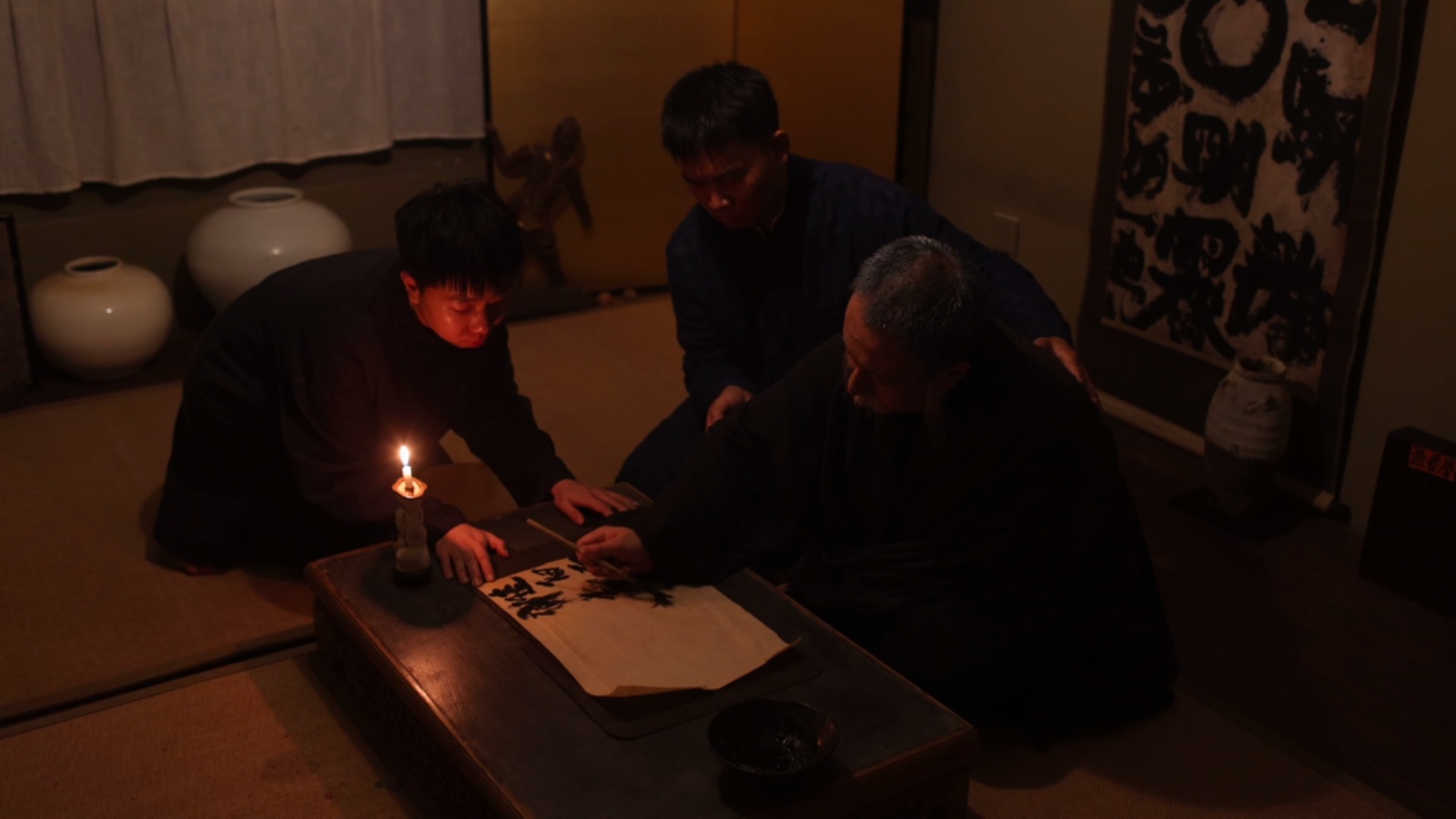 Chen Liang, Final Poem Museum: Shi Bi Zheng Shou (still frame), single-channel video (color, sound), 2024
Chen Liang, Final Poem Museum: Shi Bi Zheng Shou (still frame), single-channel video (color, sound), 2024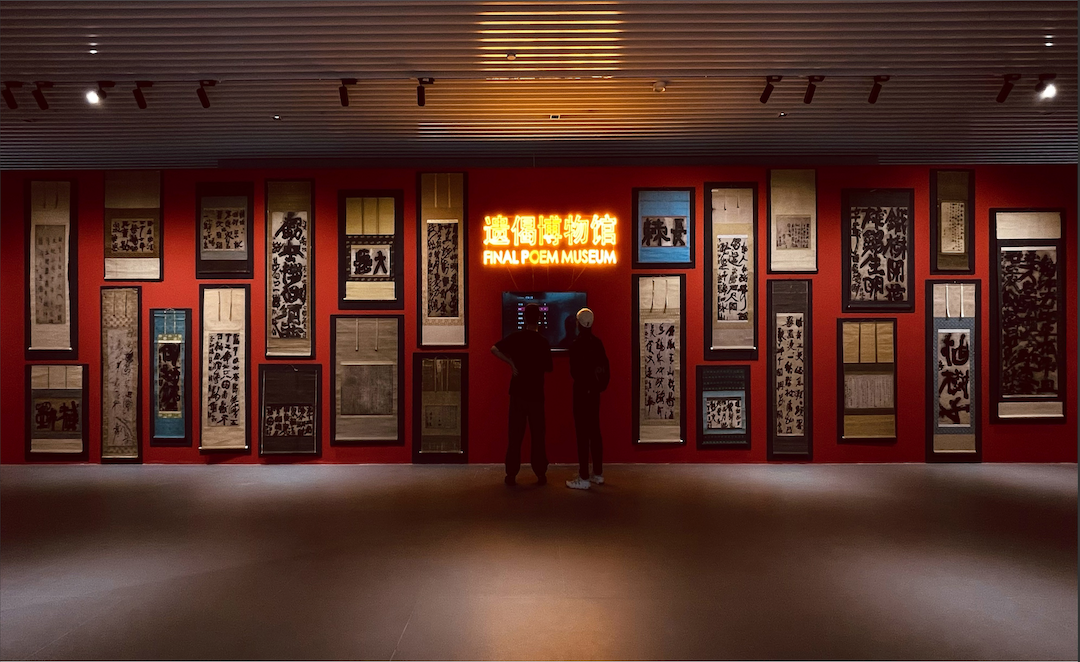 Chen Liang, Final Poem Museum, calligraphy scroll, neon lights, single-channel video (color, sound), 2024
Chen Liang, Final Poem Museum, calligraphy scroll, neon lights, single-channel video (color, sound), 2024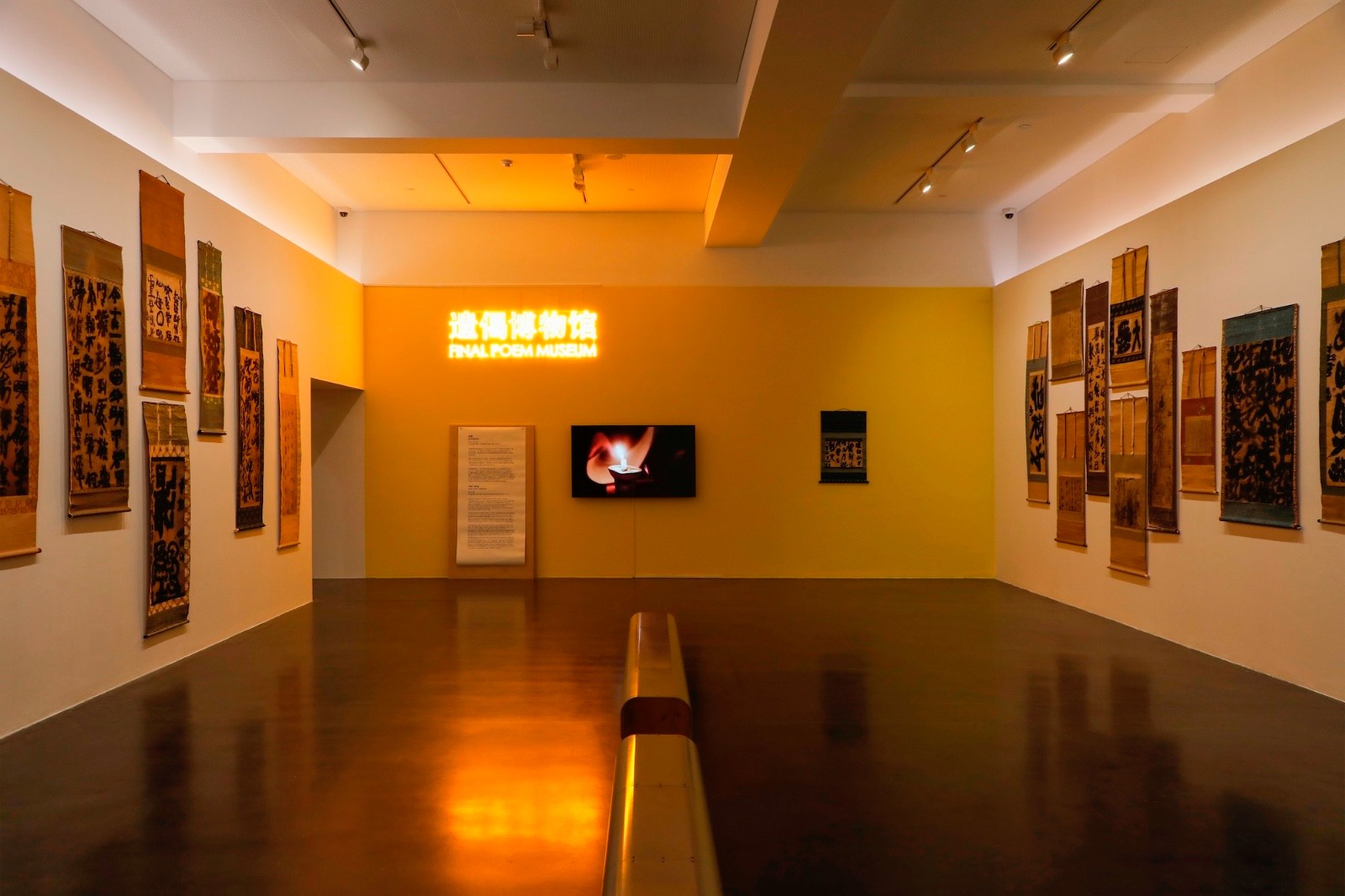 Exhibition View
Exhibition View
Chen Zhou’s “From Amitabha” is also related to Buddhism. The artist gradually removed the characteristics of the Buddha statue, and replaced them with “human flavor”. The graffiti on the work came from his son. He introduces life into his creation, allowing the impermanence, disorder and mutation of life to intervene in the creation and become the motivation for creation.
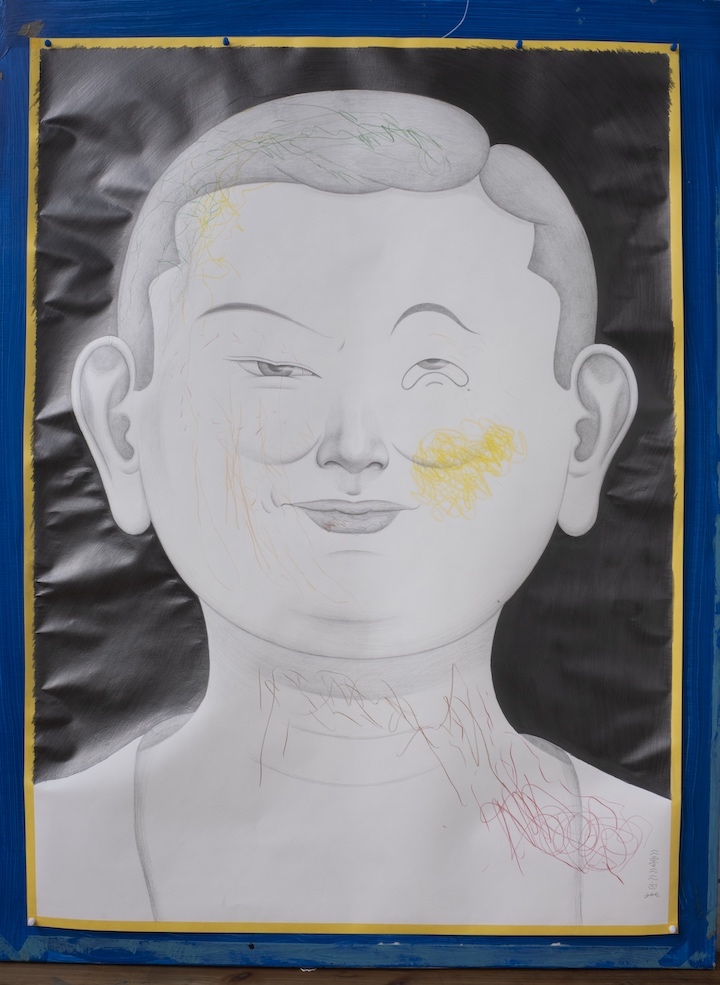
Chen Zhou, From Amitabha (Part 1), Painting on paper, 2021-2022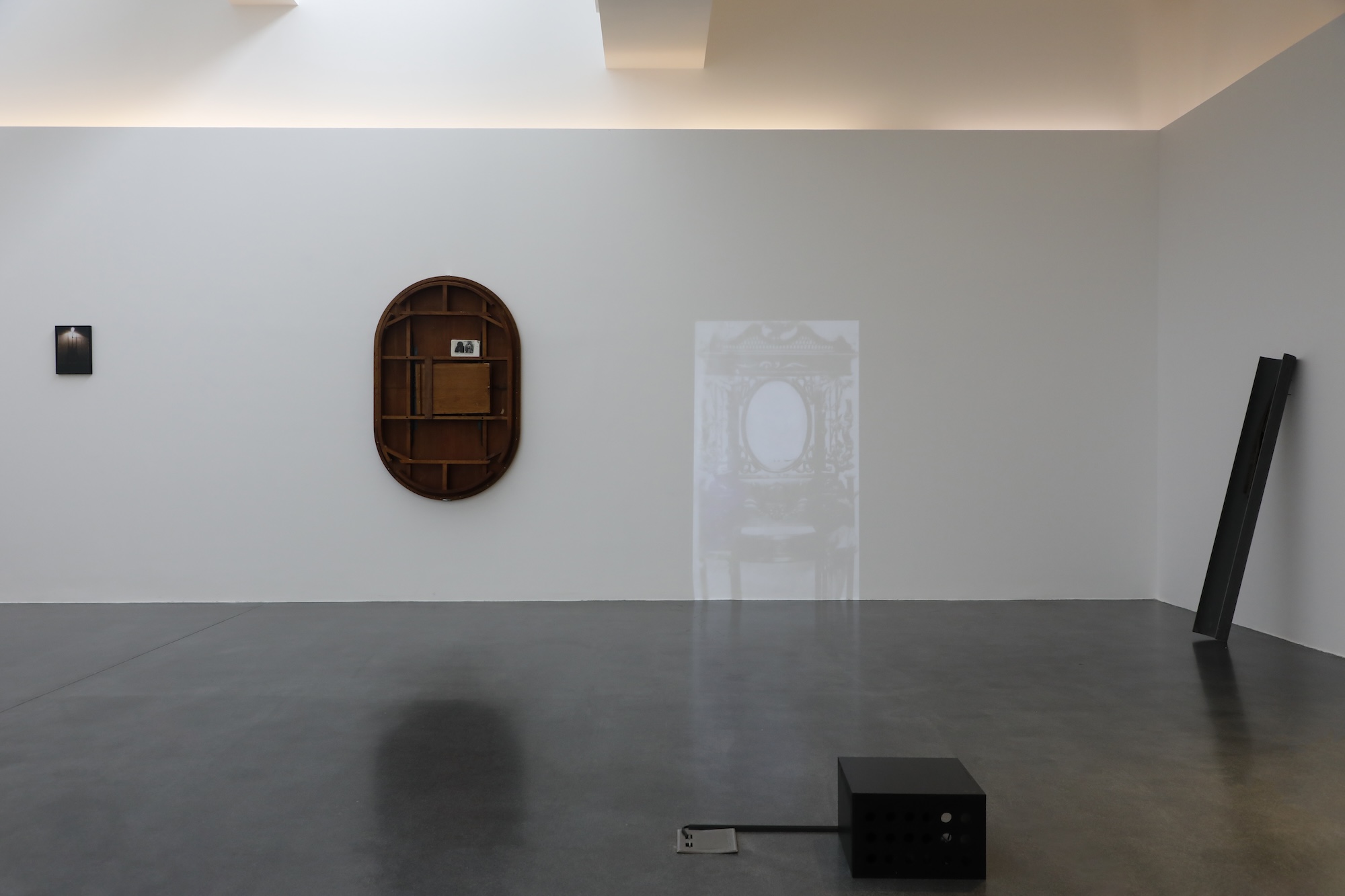 Exhibition View
Exhibition View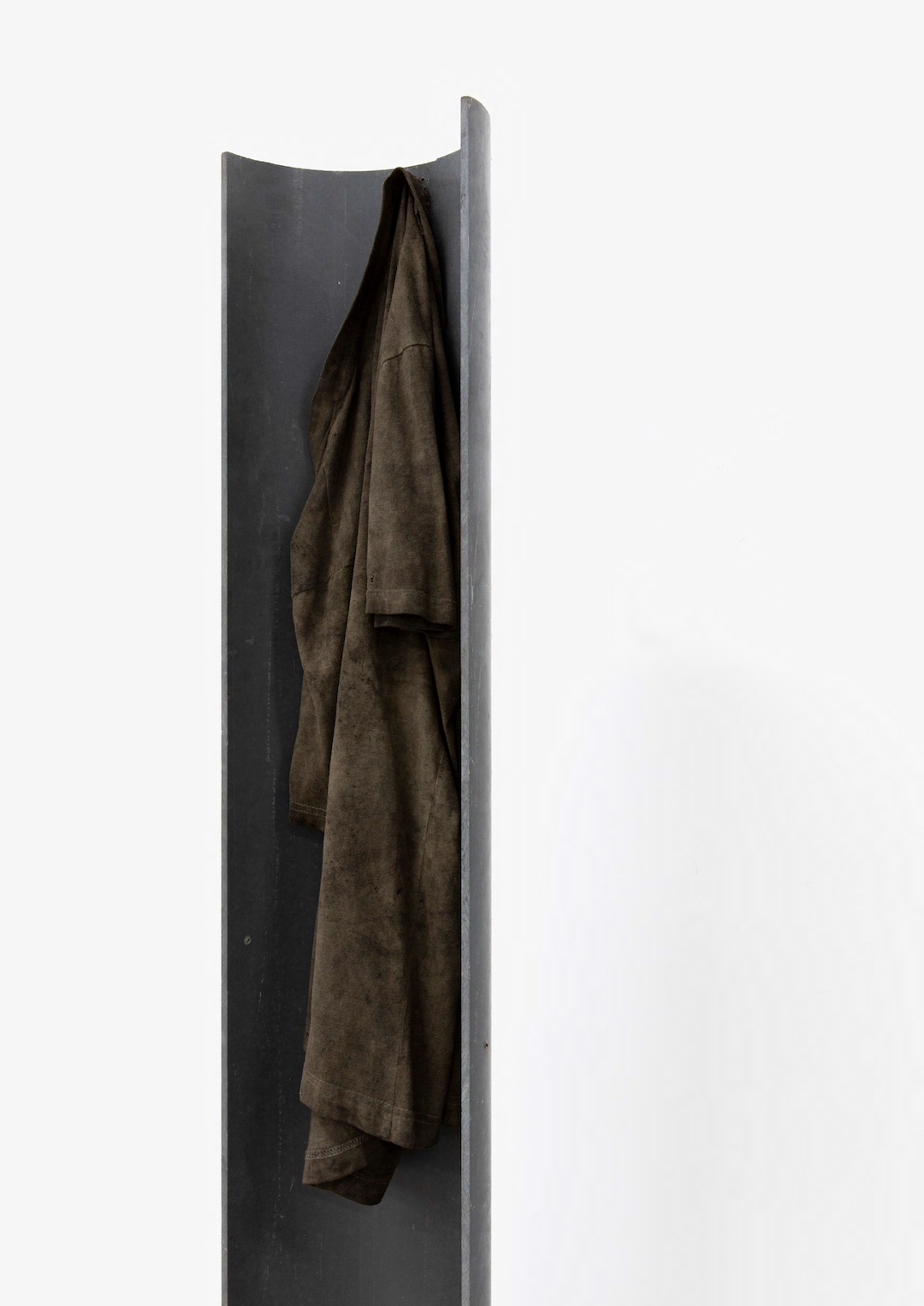 Tan Huankun, L O, PVC pipe, T-shirt, motor oil, 2021, 20 x 140 x 11 cm
Tan Huankun, L O, PVC pipe, T-shirt, motor oil, 2021, 20 x 140 x 11 cm
Tan Huankun has a strong interest in the complex process of meaning generation in visual practice. Born in 1997, the artist grew up in an era with rapid development of the Internet and he witnessed the process that the Internet has flattened cultural objects of all times into single consumer goods. The seemingly unrelated objects he has exhibited are actually about a certain moment of crisis and the “seeming inevitability” of these moments (the artist also takes them as history). These objects have thus become tombstones for those rootless emotions suspended in history and contemporary life.
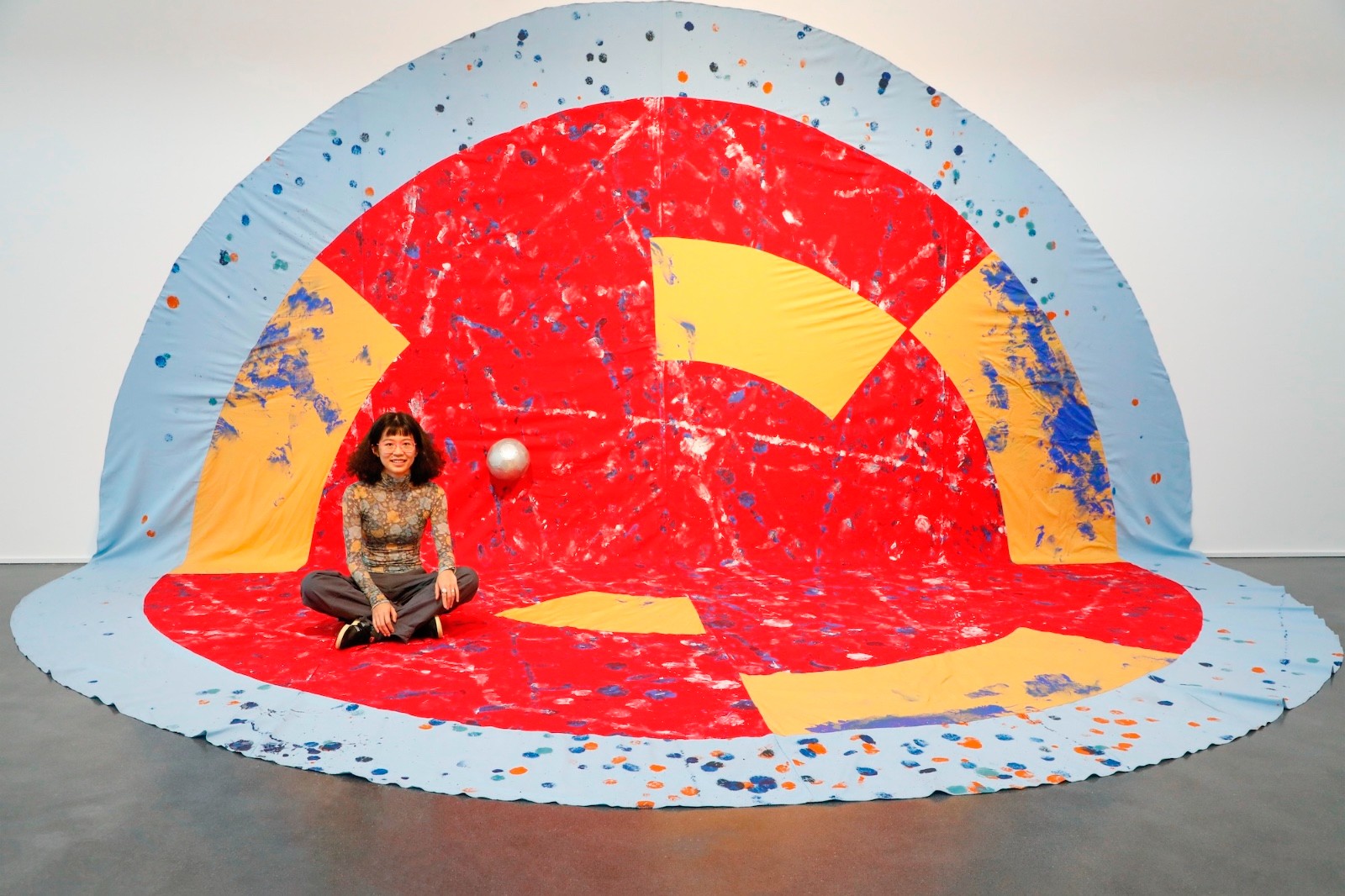
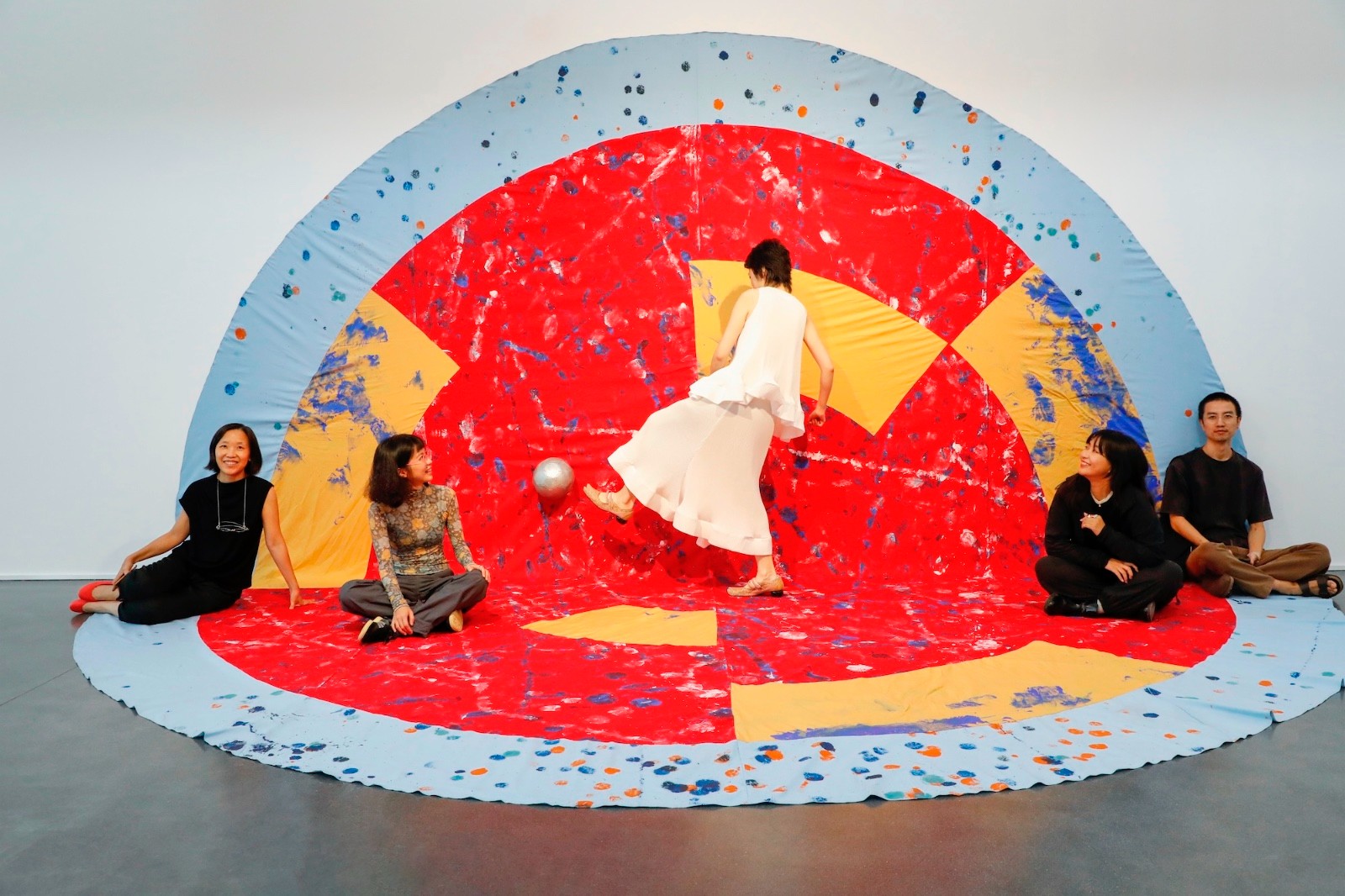
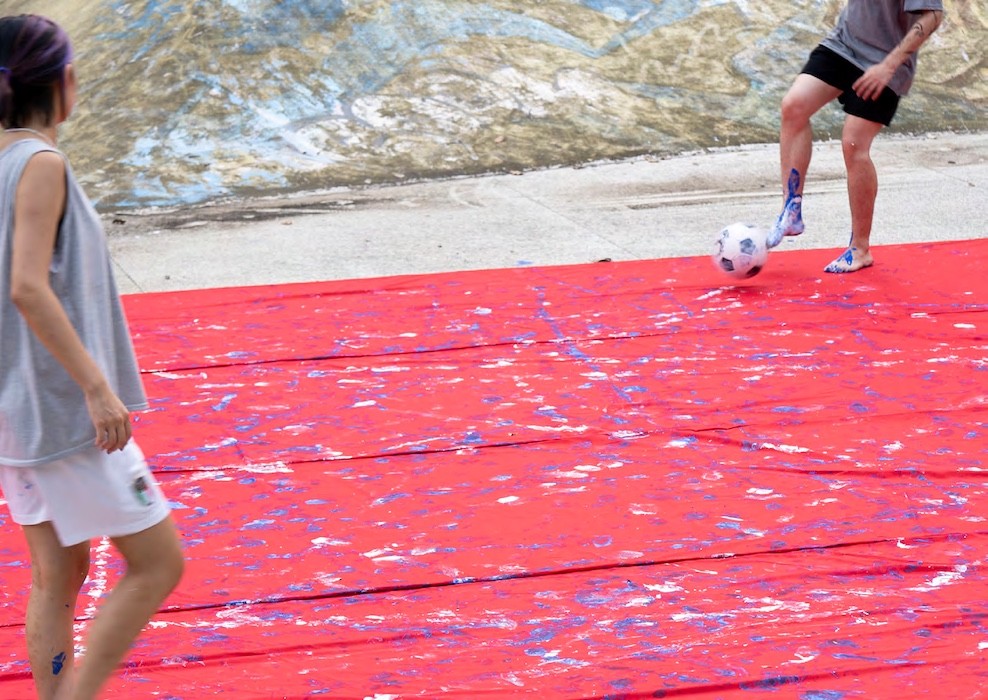 Hu Yiyao, Sports Painting, performance, single-channel video (color, sound), football, acrylic on canvas, 2023
Hu Yiyao, Sports Painting, performance, single-channel video (color, sound), football, acrylic on canvas, 2023
Sports painting originated from Hu Yiyao’s experience of rehabilitation after her surgery. The bright red canvas was the movement track left when playing football, and the light blue canvas was the movement track left when playing tennis. Improvisation is not merely one of the values of art, but can also be regarded as a value of life. As a way of thinking, it allows us to remain acutely aware of changes, rather than being fearful or flinching. Anything unexpected, whether it be natural catastrophe, war, or pandemic, can throw us into unprecedented chaos, which, however, may be necessary for the development of life. And at this point, improvisation can probably be a more proactive response compared to passive coping.
At the edge of the third floor, several vases were placed on the platform, with red dye flowing out of the vases. The fallen dried petals and bottle fragments extend the eyeline of visitors to the second floor, echoing and connecting with the vase fragments at the entrance of the exhibition. While the exhibition is on display, the dye will continue to change the color of the plants, and the final appearance of this work closely linked to improvisation cannot be known until the very end.
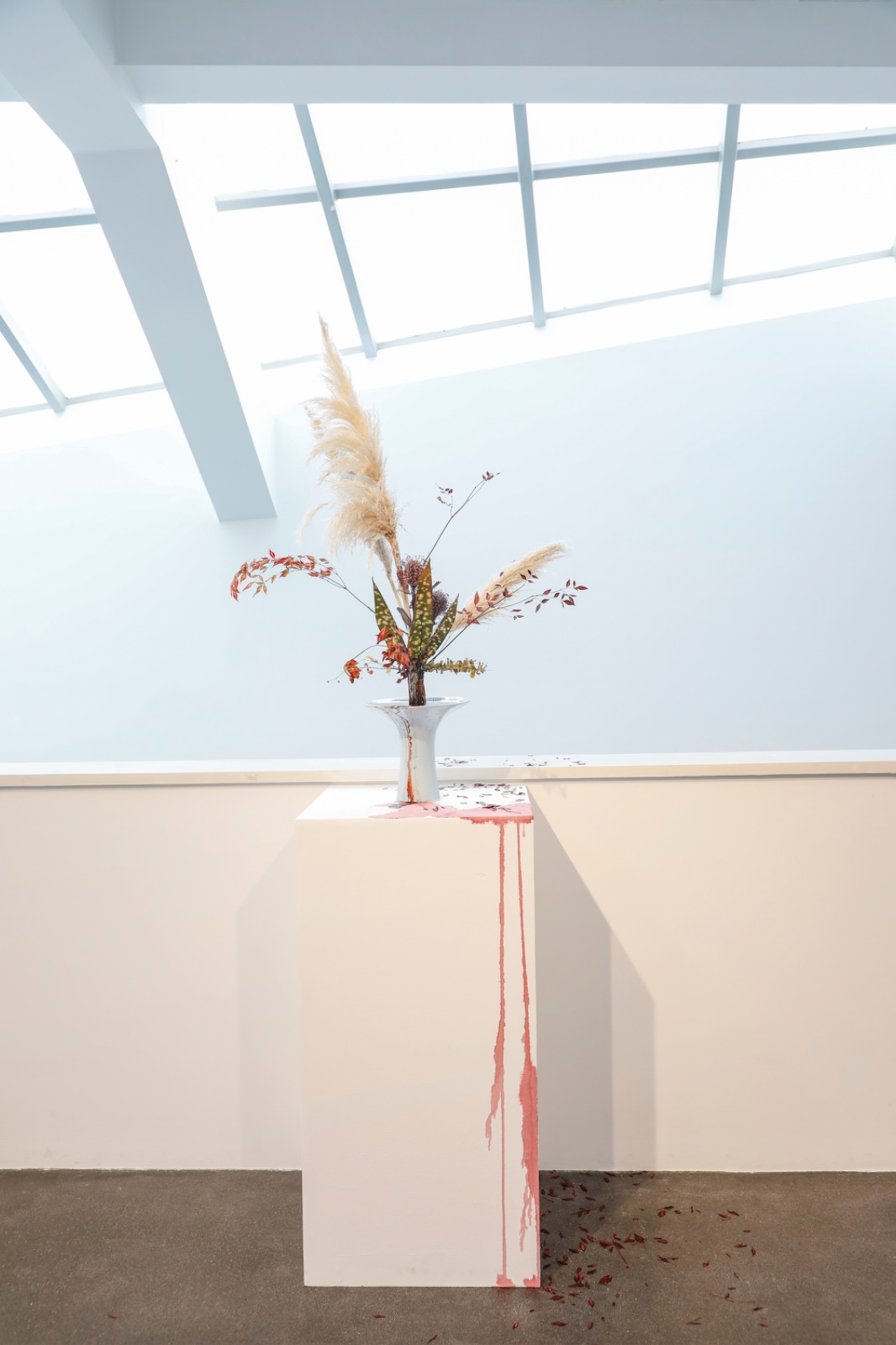
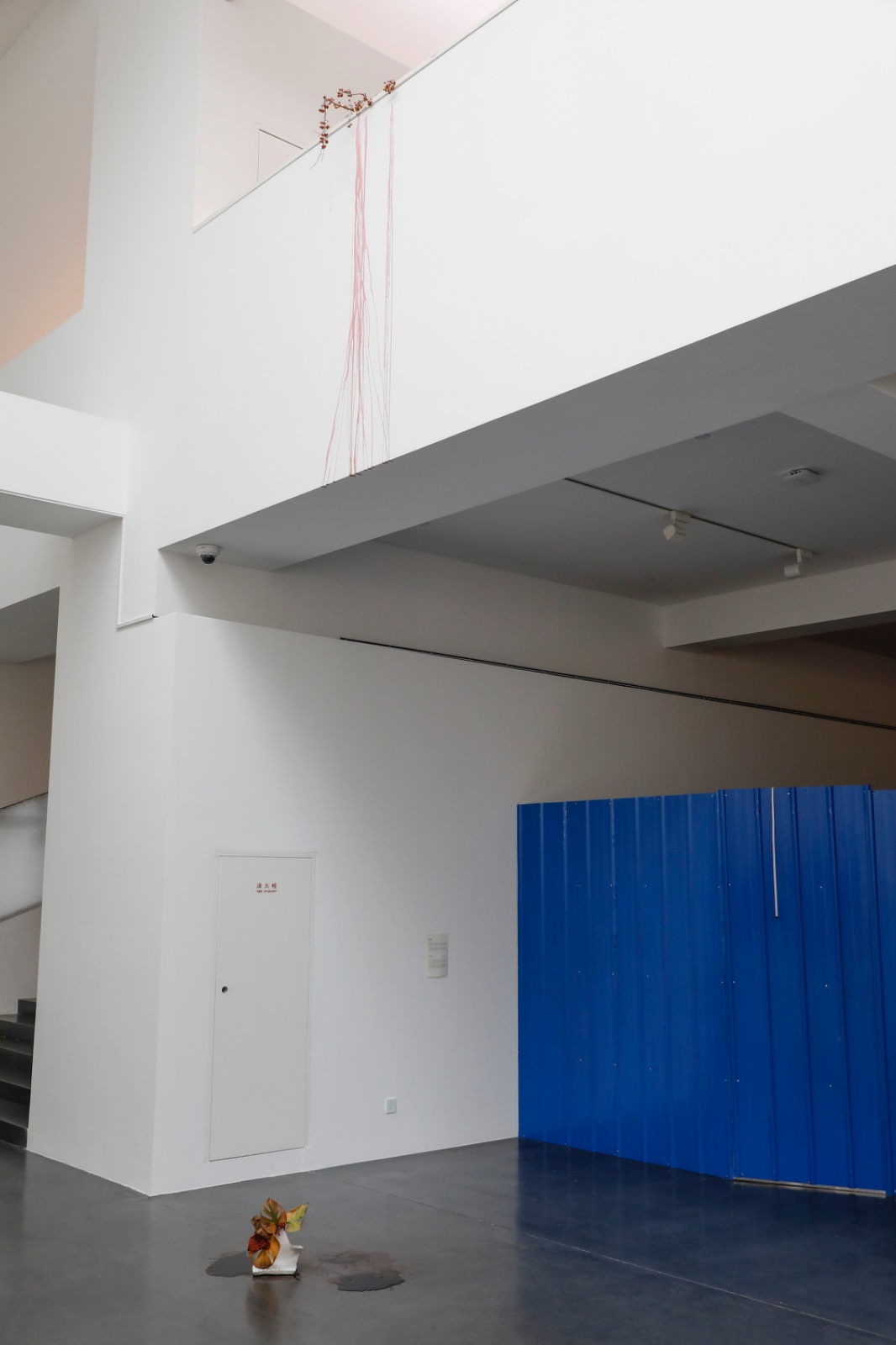 Exhibition View
Exhibition View
“Improvisation” at the Beijing Inside-Out Museum is more than a concentrated display of improvisational art, as it provides a profound exploration of how artists maintain their vitality and freedom when they are challenged by such an ever-changing world. We can also feel the light, soft and tenacious perspectives that improvisation contains. It can either be free from life, invisible in life, wild in life, or it can constantly create in life, be friends with life and recreate life. As Carol Yinghua Lu, art critic and curator of this exhibition states, “It is through the continuous efforts of individual artists to break away from existing paradigms and constraints, to tamper with them, to clash with them, and eventually to transcend them that the evolution of art becomes possible. Improvisation is a unique expression of the way artists break through stable structures, a manifestation of their power of subjectivity. In this sense, improvisation contributes to an intrinsic impetus of art and art history, leading the life of art towards openness, dynamism and evolvement.”
Courtesy of Beijing Inside-Out Museum, edited (CN) by Du Yitong, edited (EN) by Sue/CAFA ART INFO
About the Exhibition
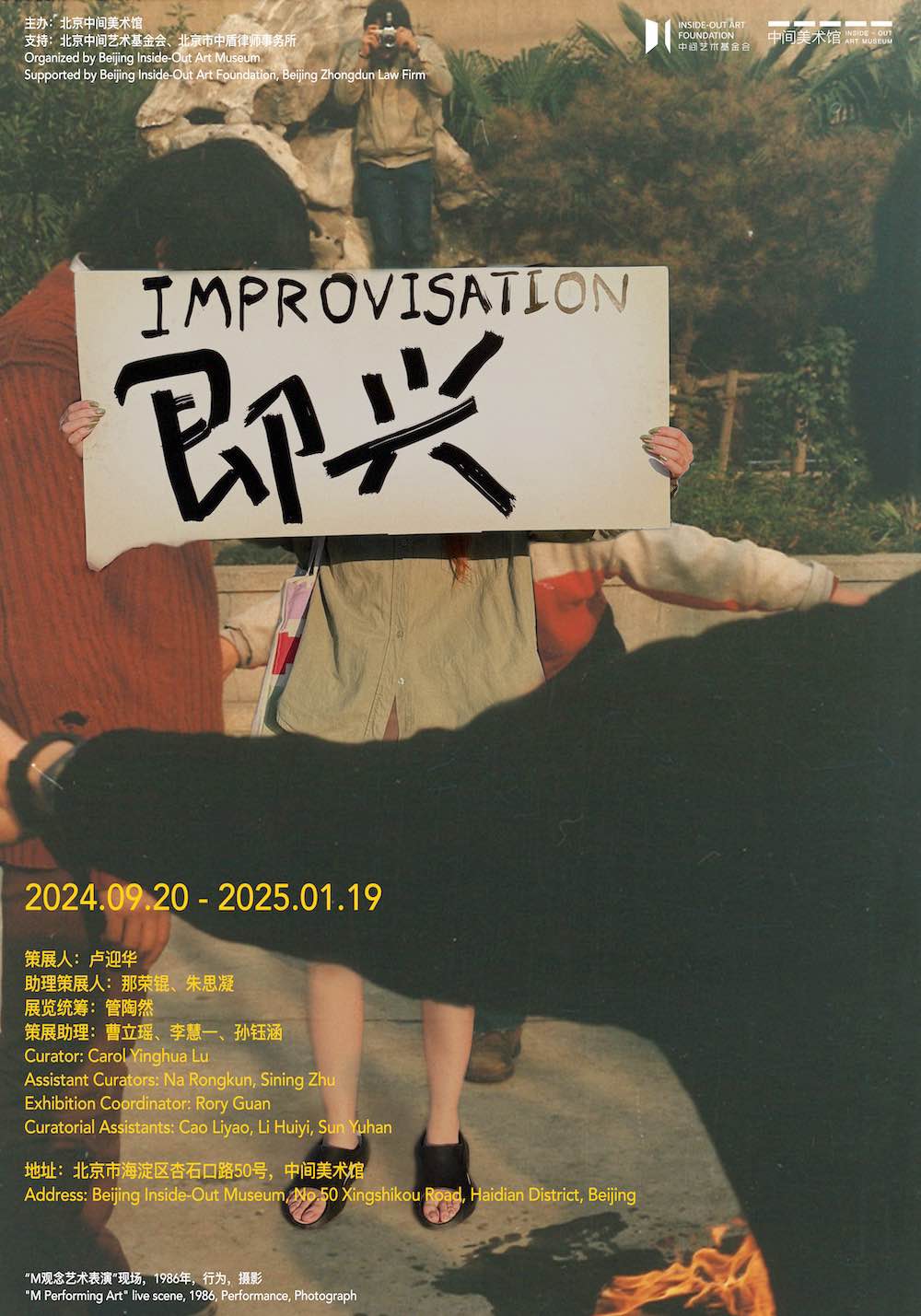
Dates: September 20, 2024–January 19, 2025
Venue: Beijing Inside-Out Museum
Participating Artists *Listed in alphabetical order (Chinese surname):
Pak Sheung Chuen, Chen Liang, Chen Zhou, Ergao (He Qiwo), He Liping, Hu Yiyao, Liu Zhan, M Art Group (Fu Yuehui, Gong Jianqing, Hu Yuelong, Li Zuming, Qin Yifeng, Shen Fan, Song Haidong, Tang Guangming, Wang Guqing, Weng Liping, Yang Dongbai, Yang Hui, Yang Xu, Zhao Chuan, Zhou Tiehai), Ma Liuming, Peng Xueying, Cement Park (A Zhong, Chun Yi, En Dian, Fan Xiaoxue,Gao Xu, Heiyue·Jishengli, B.A.T, LDS, Shi Xing, Shu, Wenjie Junjie, Xie Songqing, Yi Fan, Zhan Yi, Link), Vunkwan Tam, Tong Tianqing, Wang Sishun, Yorkson, Artists of Original Sound (Cang Xin, Florence Gomez, He Ruijun, Luo Lin, Ma Liuming, RongRong, Song Dong, Boriana Varbanov, Wang Shihua, Zhang Huan, Zhu Fadong, Zuoxiao Zuzhou), Zhang Wei, Zhang Zhihui, Zhong Yunshu, Zhou Bin, Zuoxiao Zuzhou.
Address: No. 50 Xingshikou Road, Haidian District, Beijing
Acknowledgement
We would like to thank these artists, scholars, curators and institutions for their generous support:
Chen Yifei, Chen Yuetong, Duan Jun, Huang Pojan, Ke Nini, Edward Sanderson, Li Jianhong, Lin Wenjun, Luo Xiaoming, Mi Nuo, Benson Pan, VAVABOND, Zhao Ziyi, Zhou Dengyan.
A4 ART MUSEUM, Empty Gallery, Three Shadows Photography Art Centre & Three Shadows +3 Gallery, BY ART MATTERS, Star Gallery.


